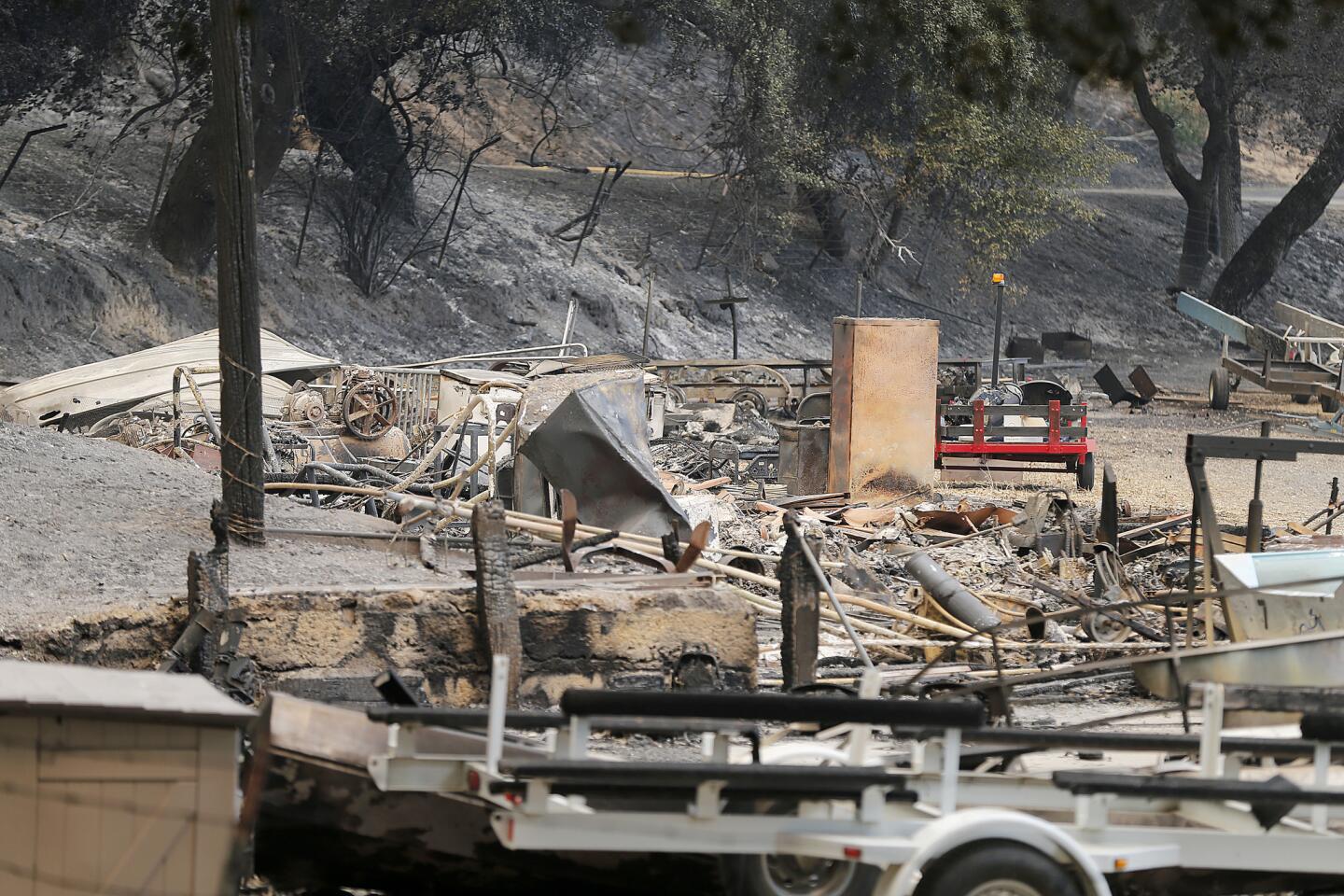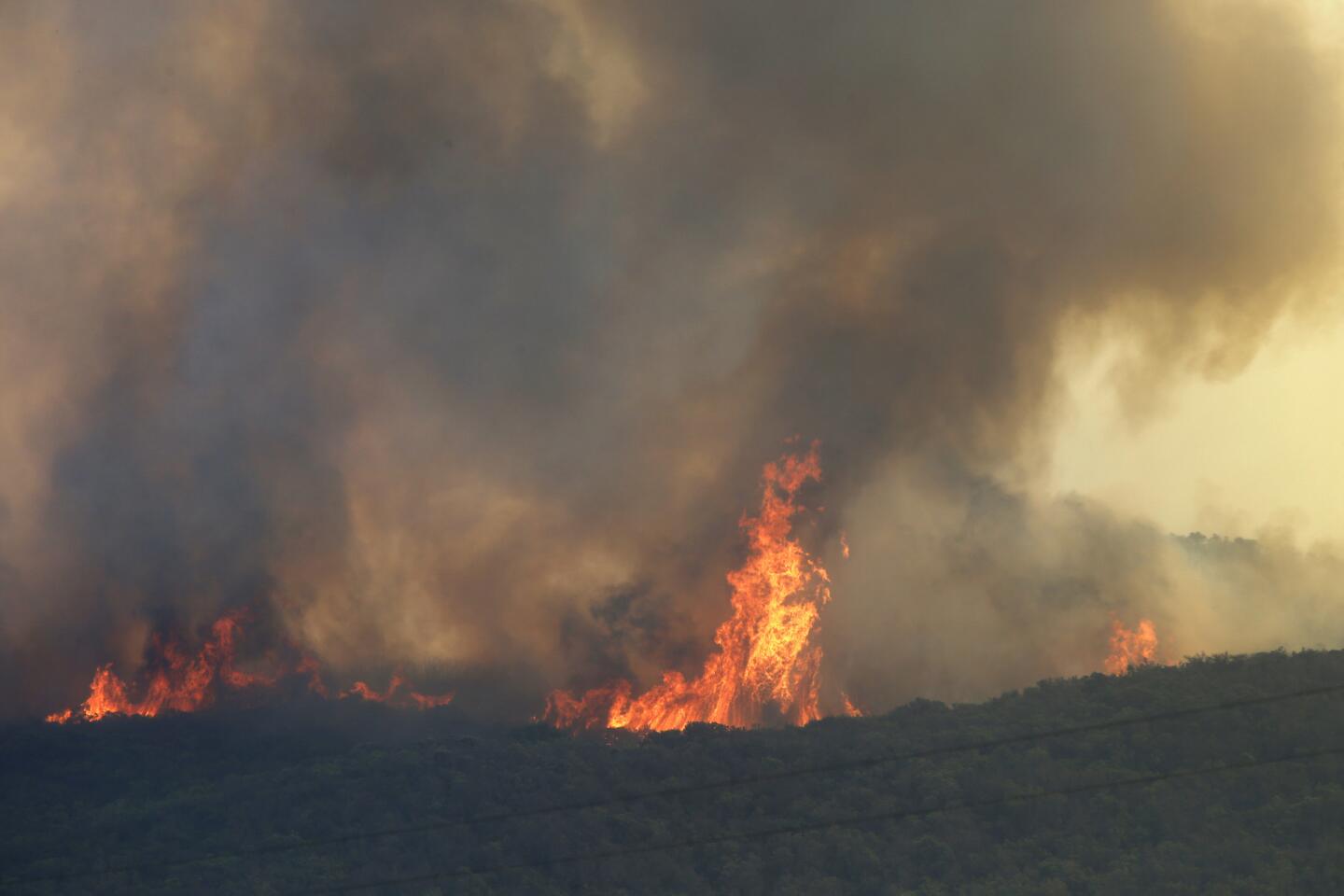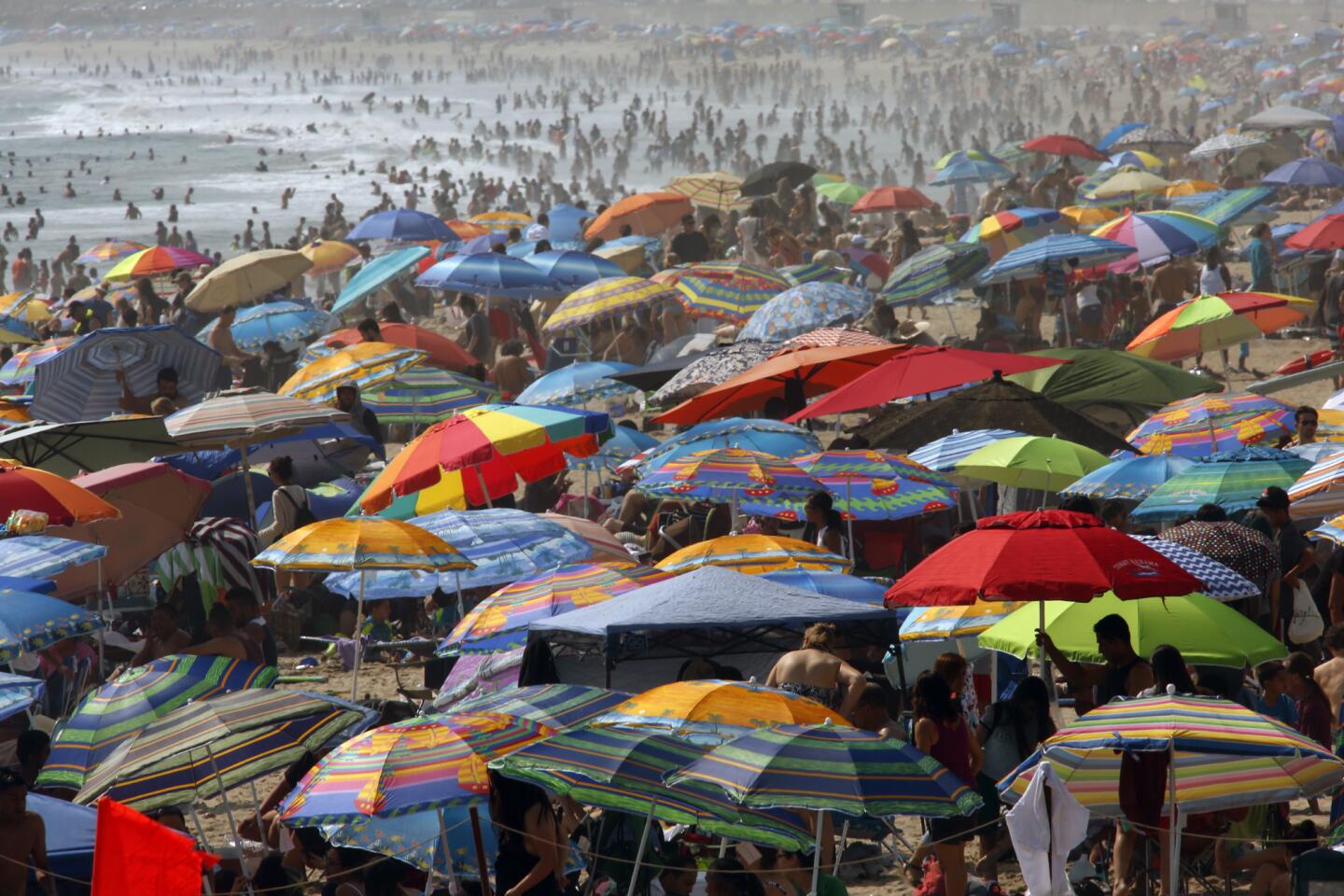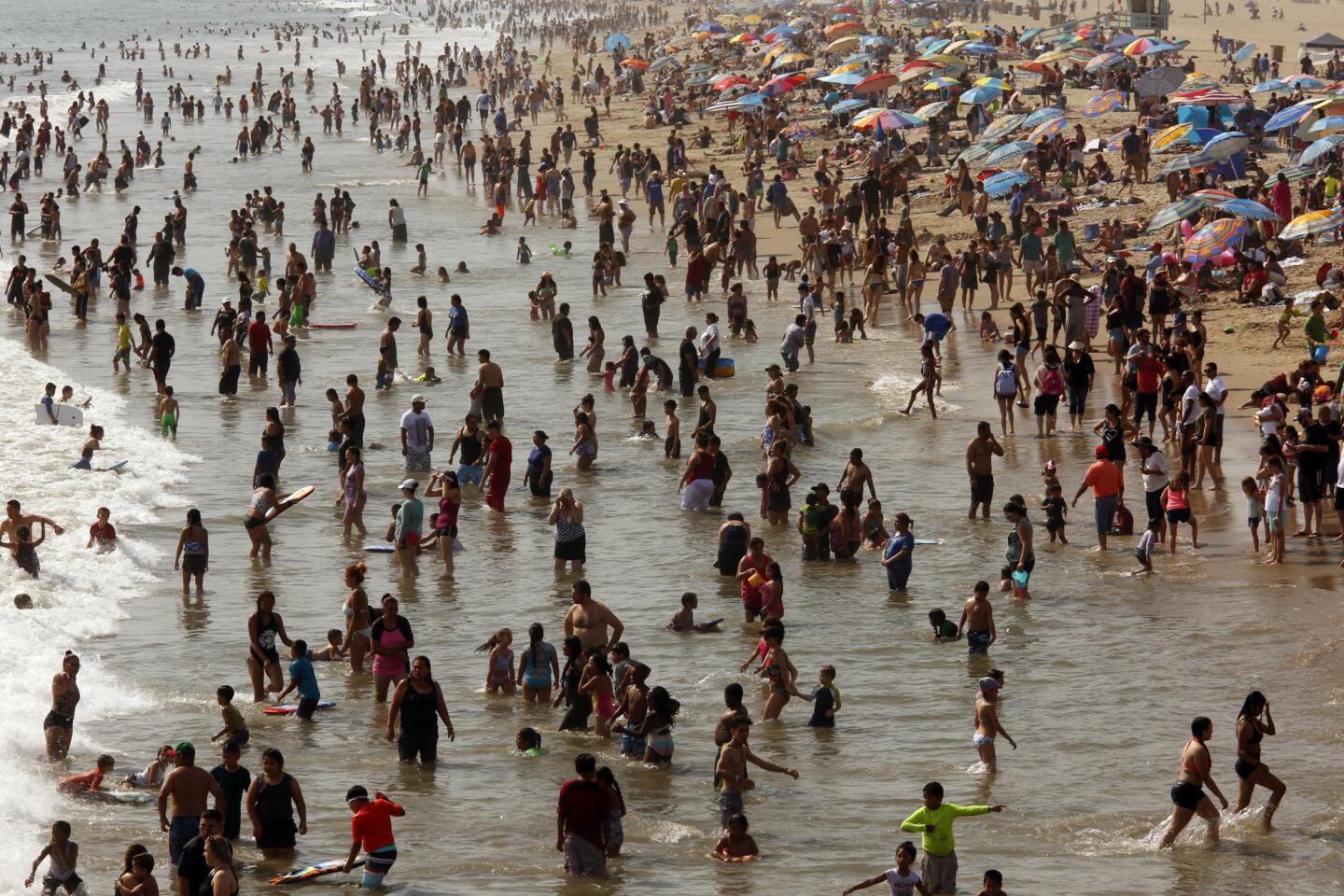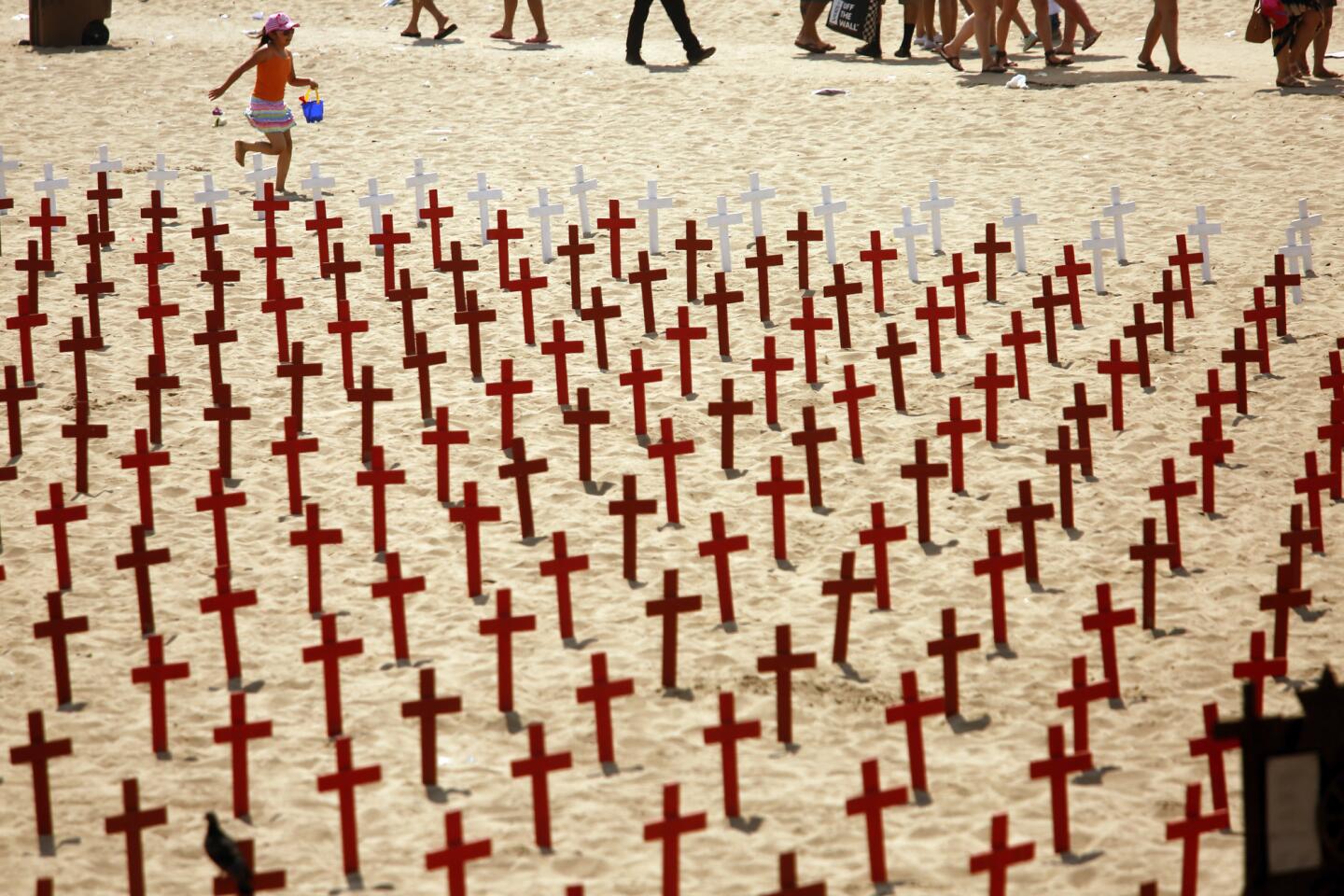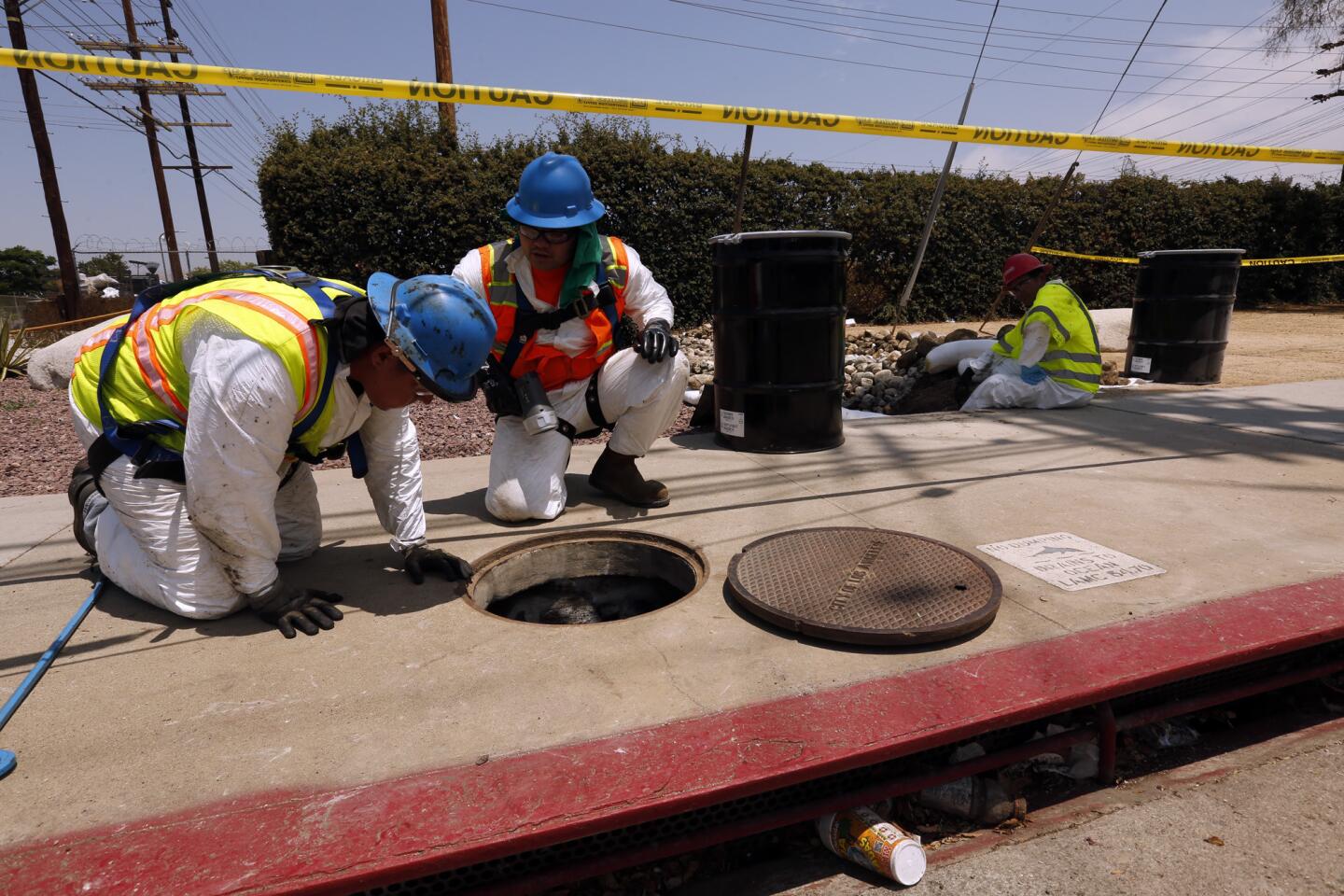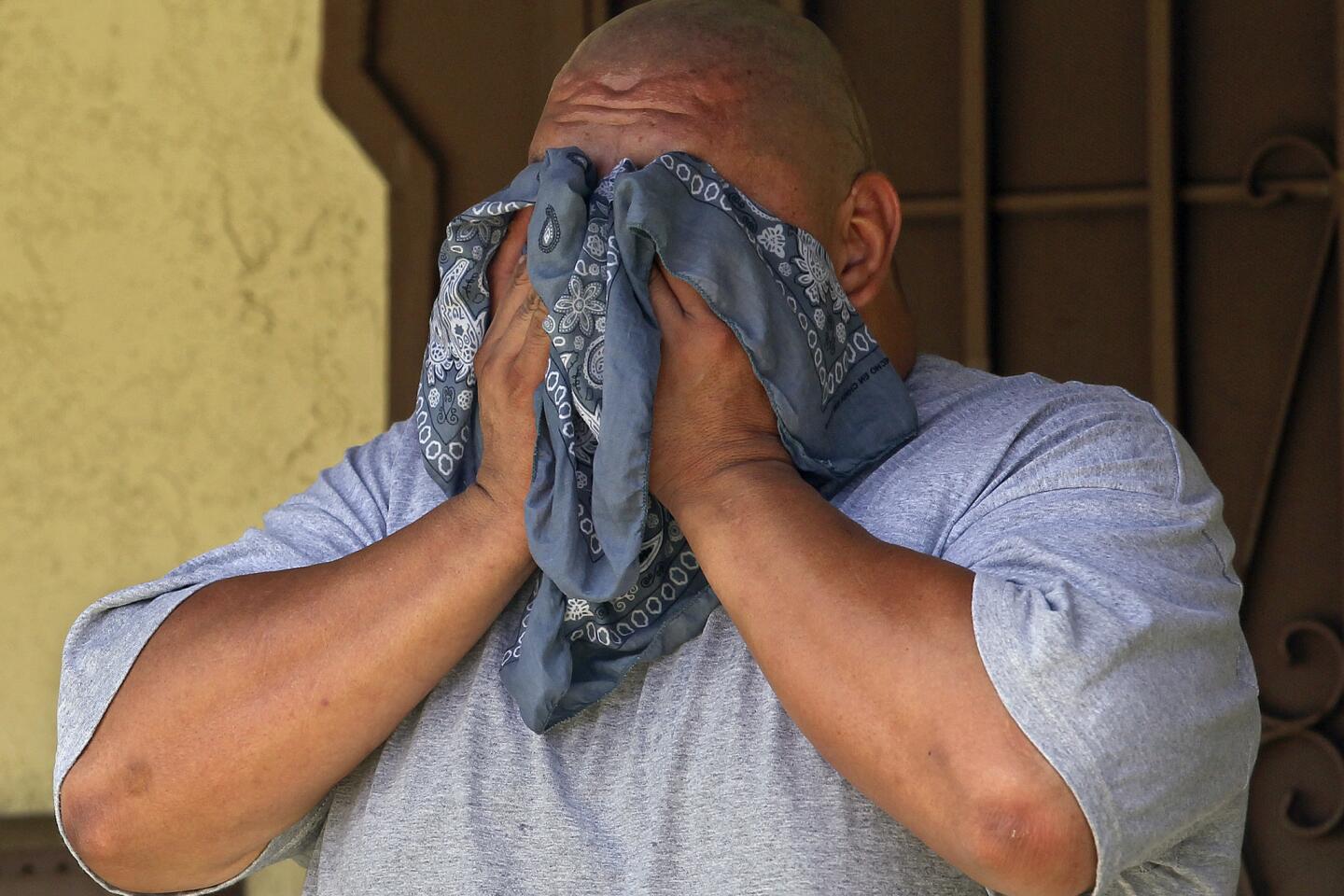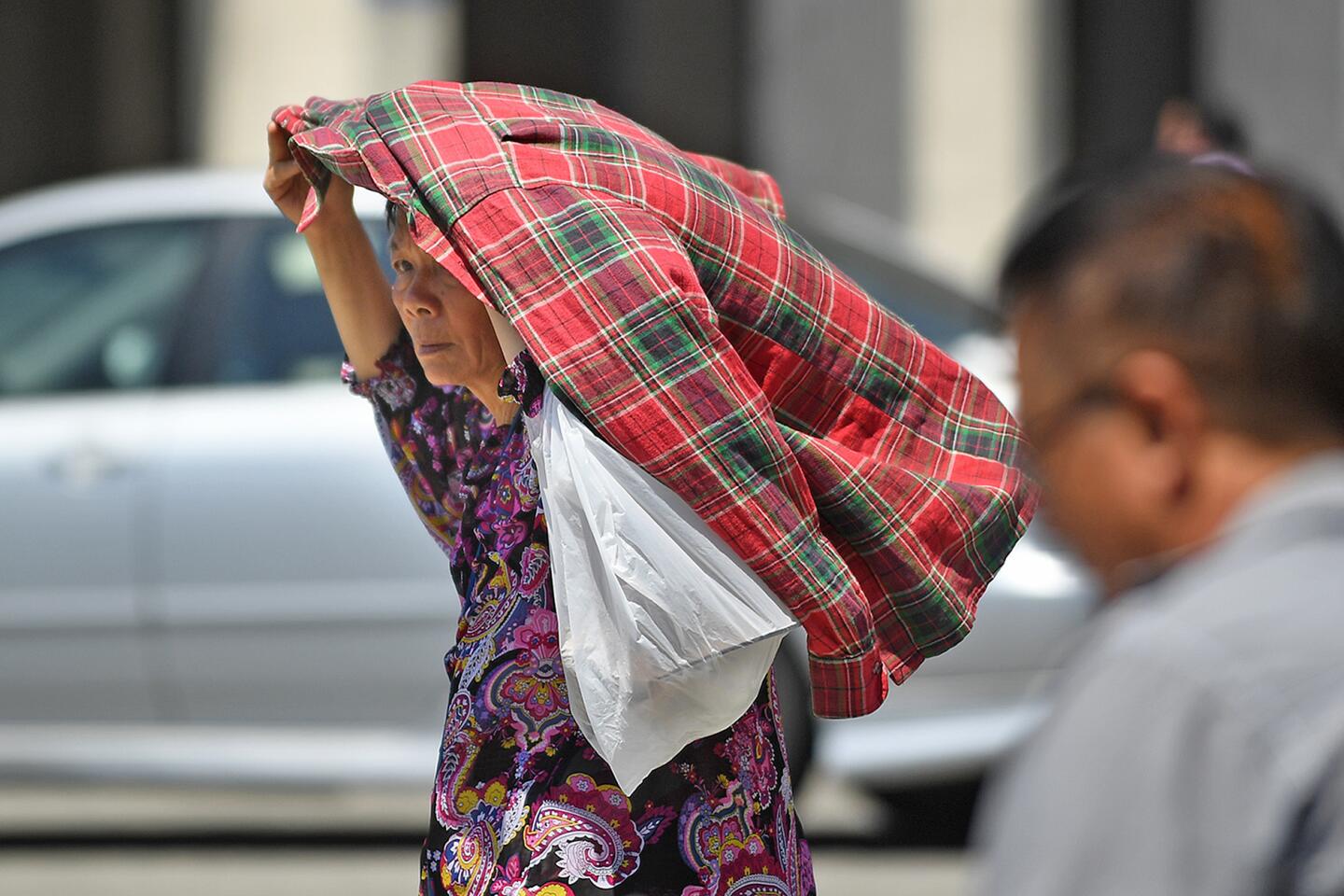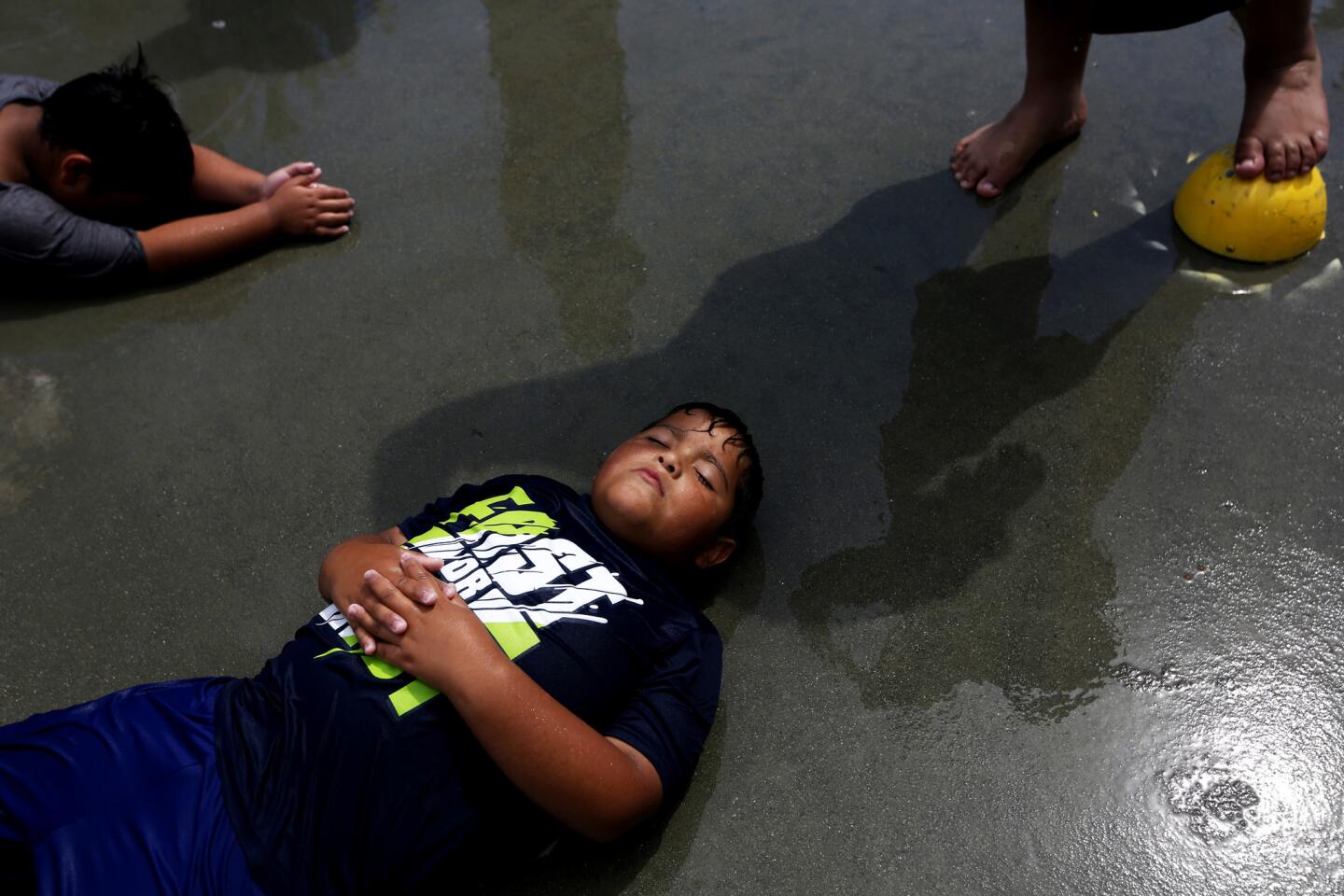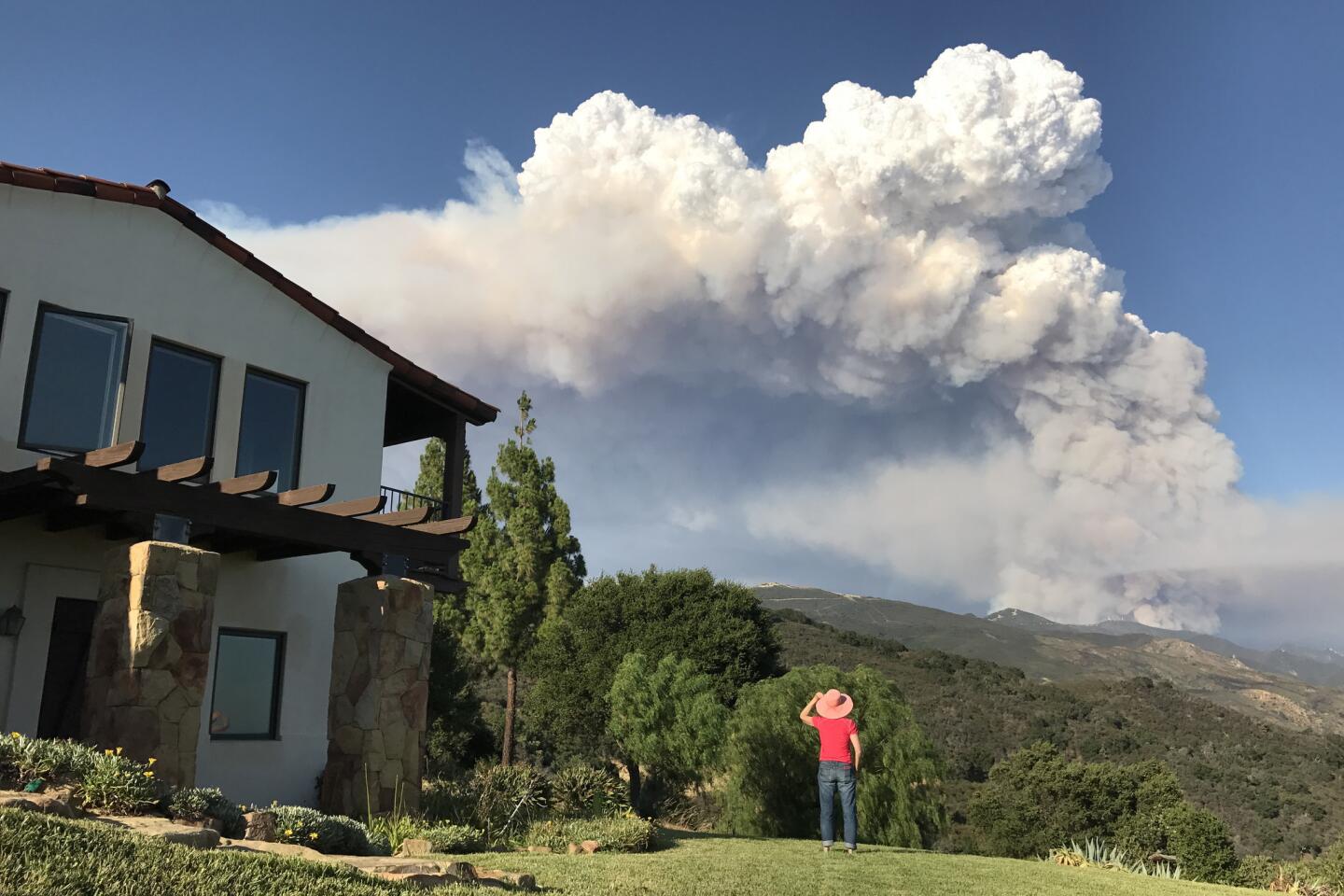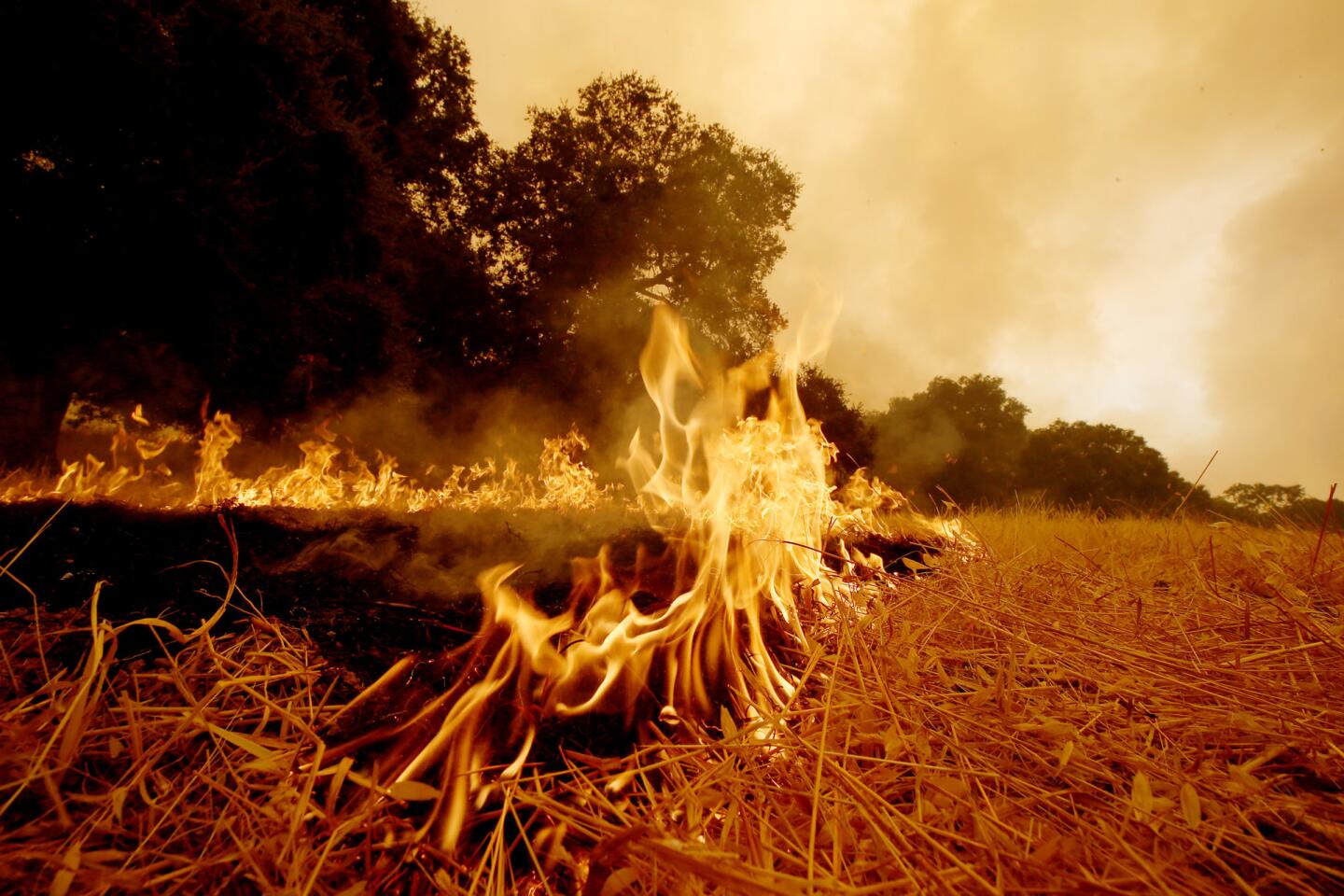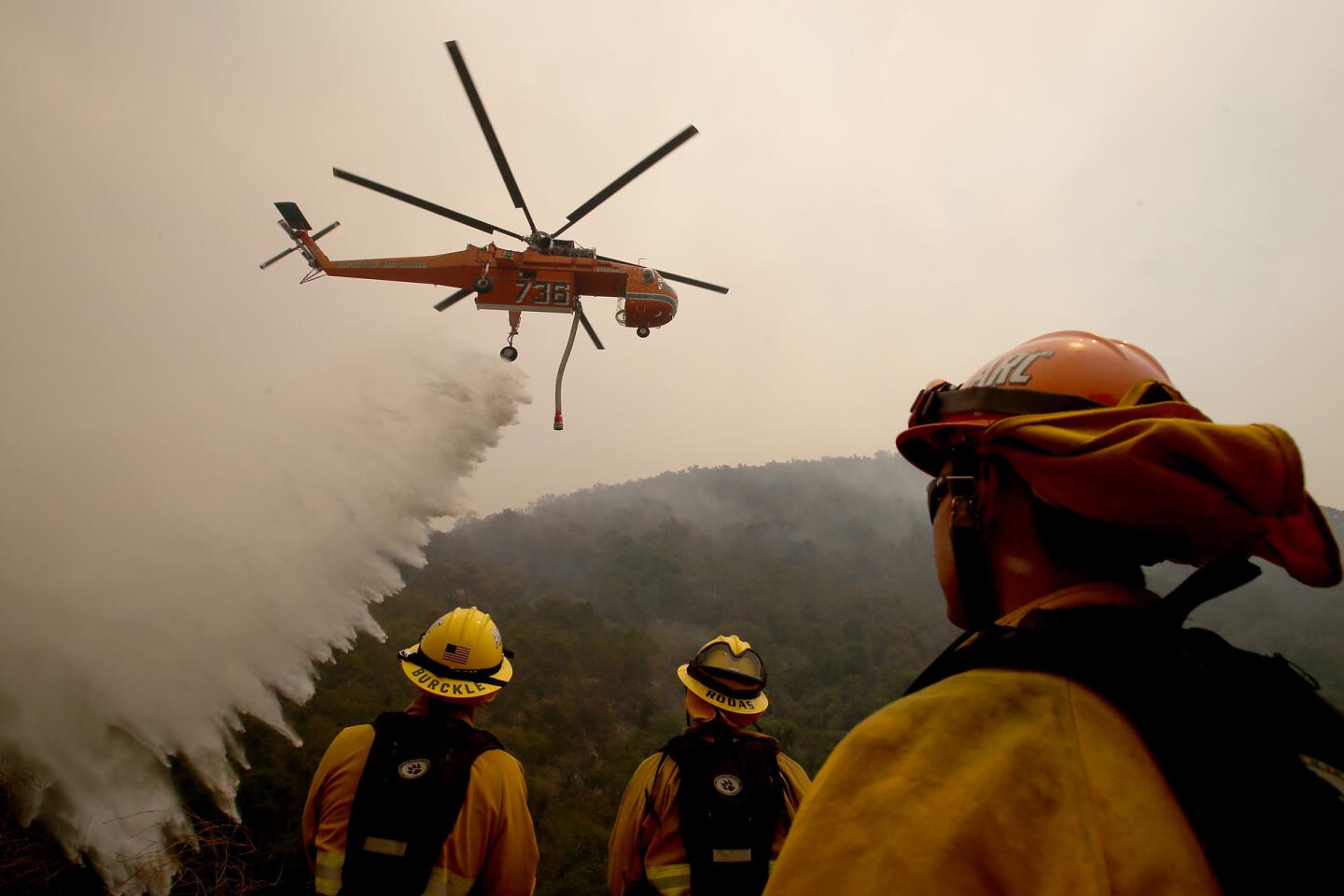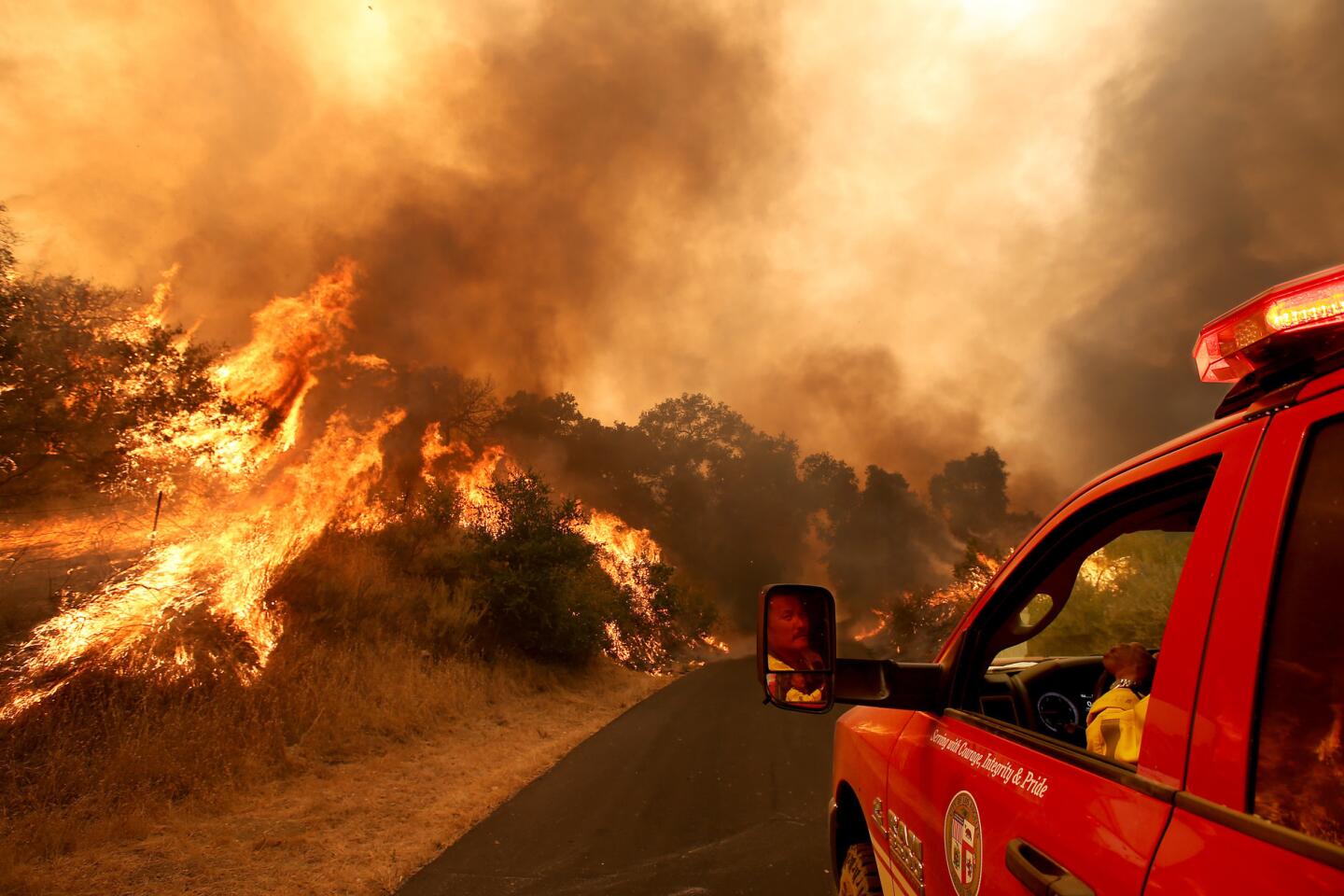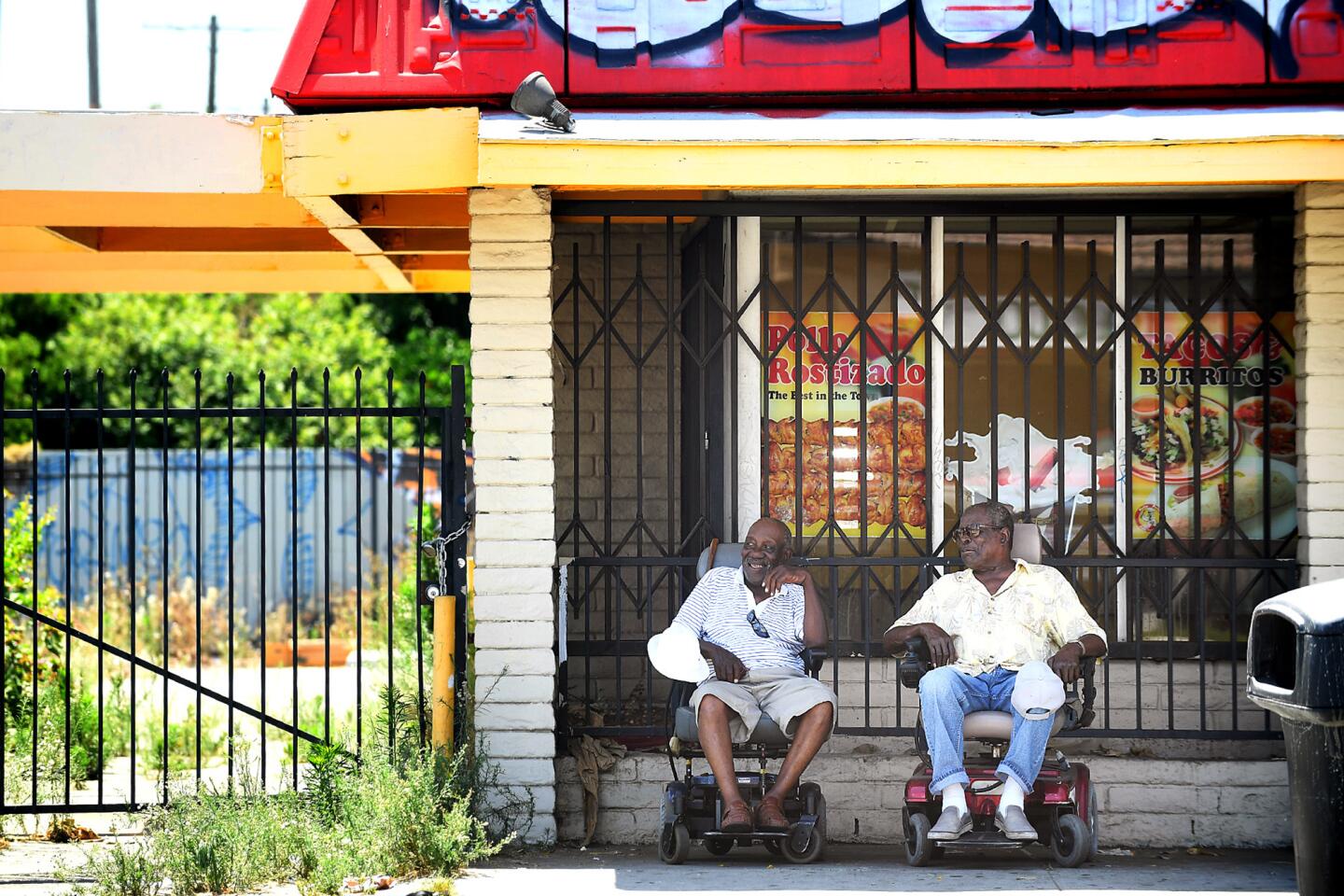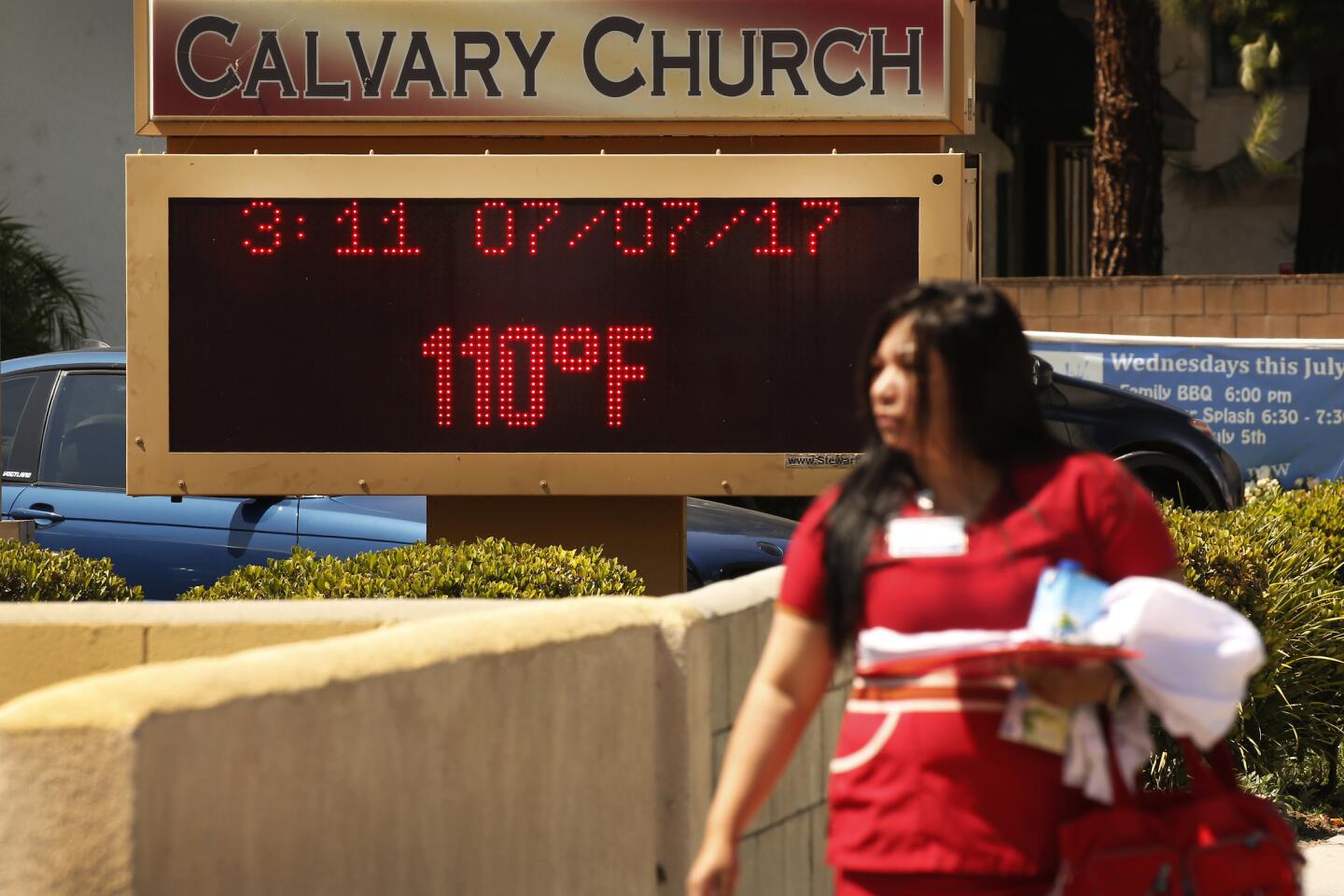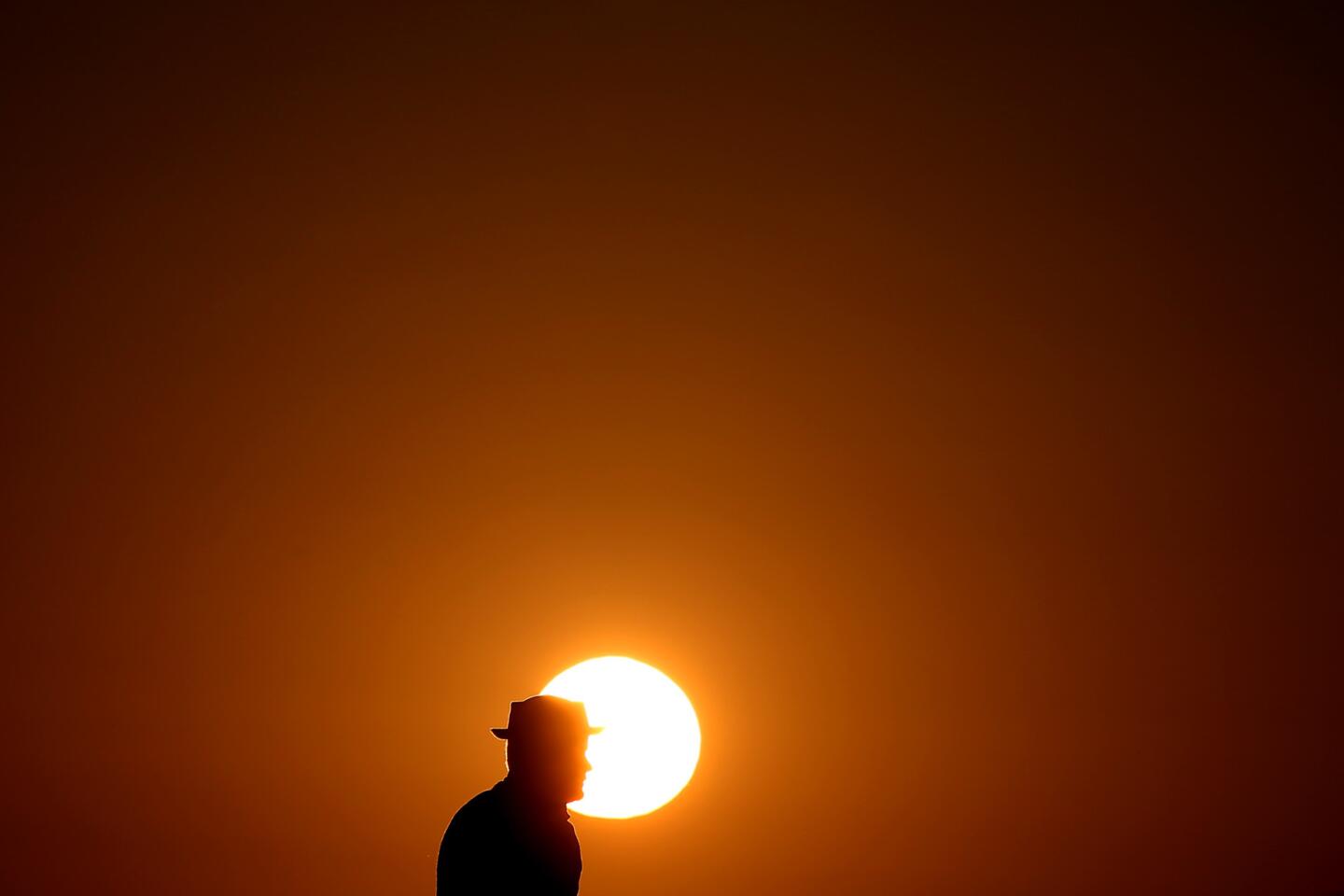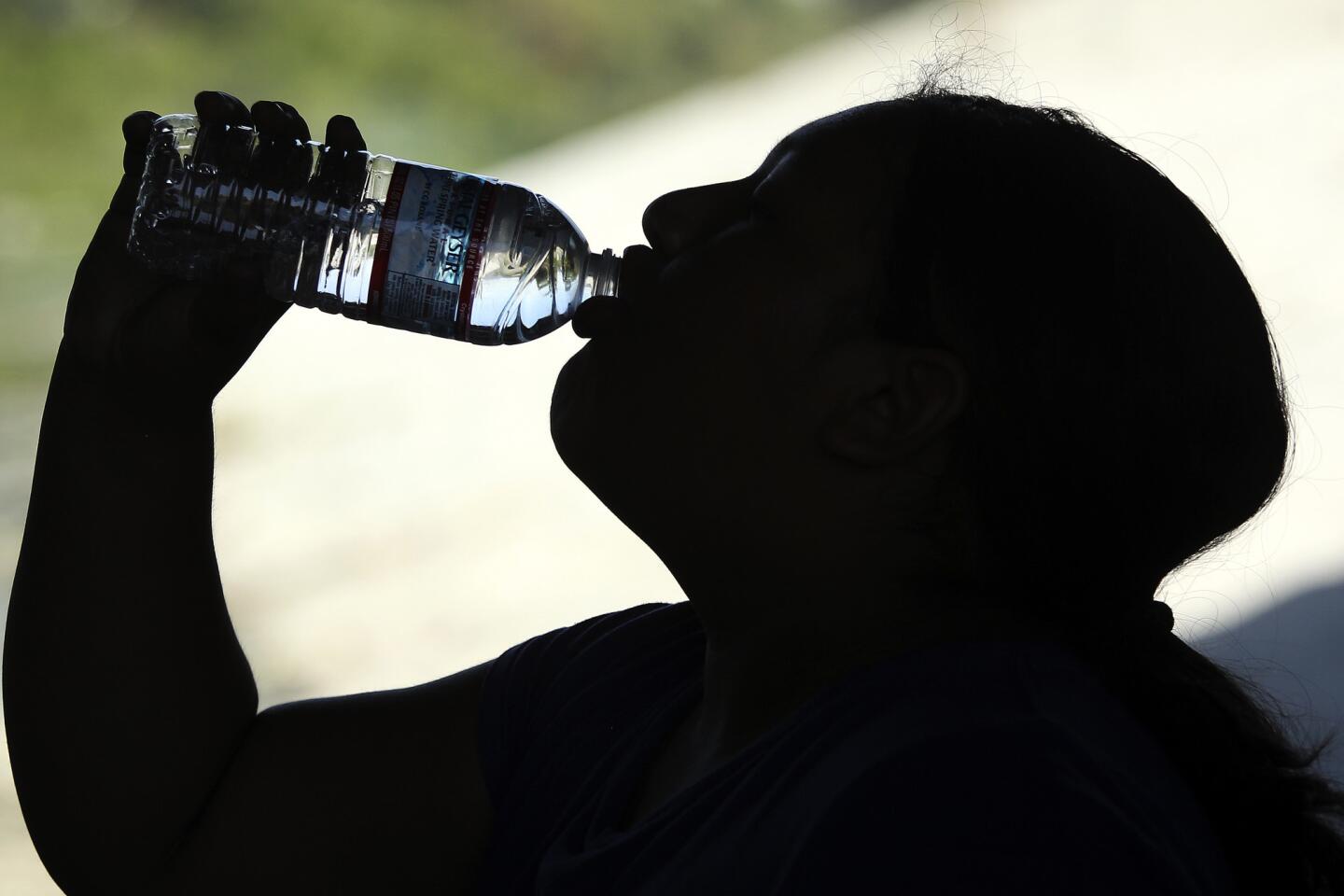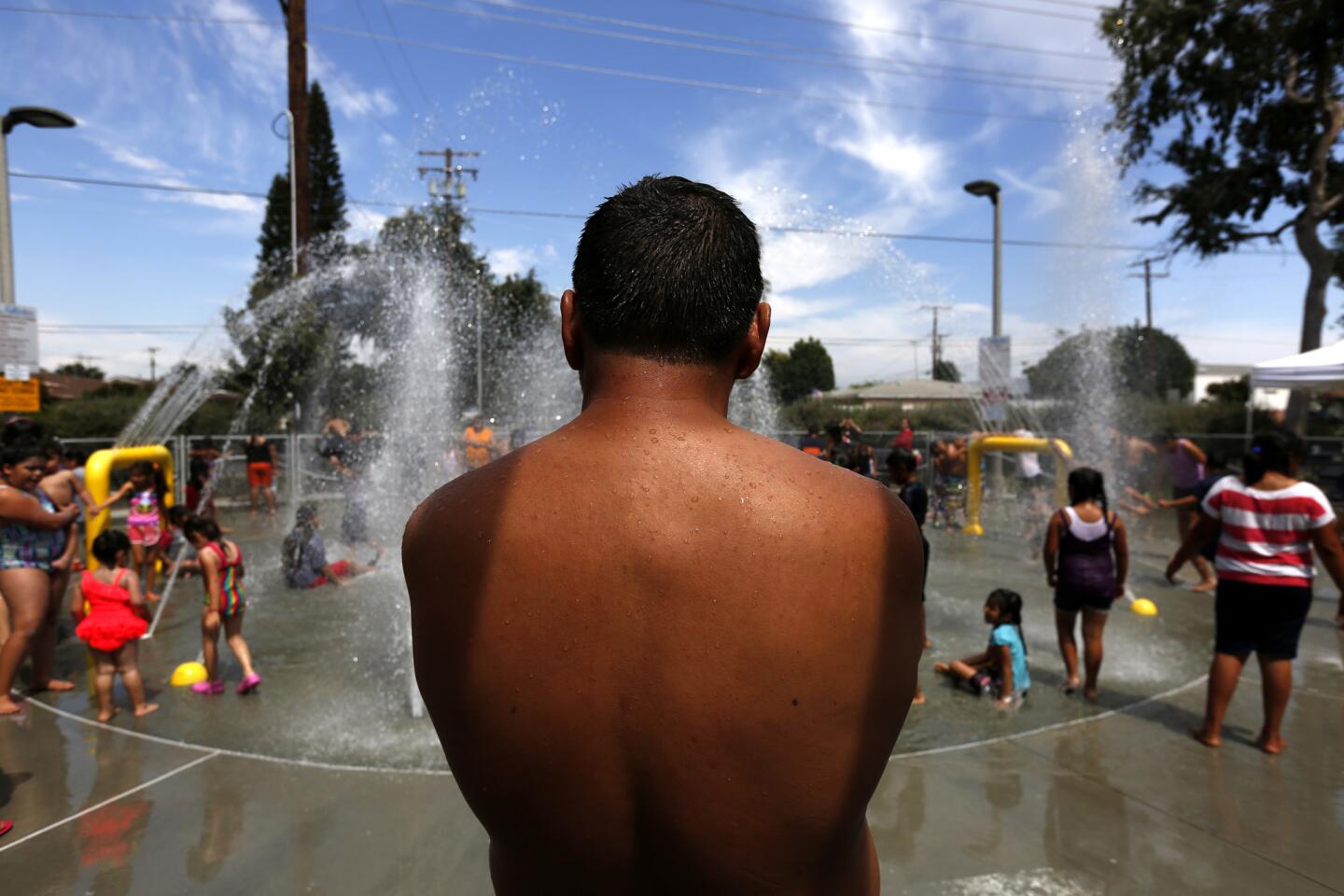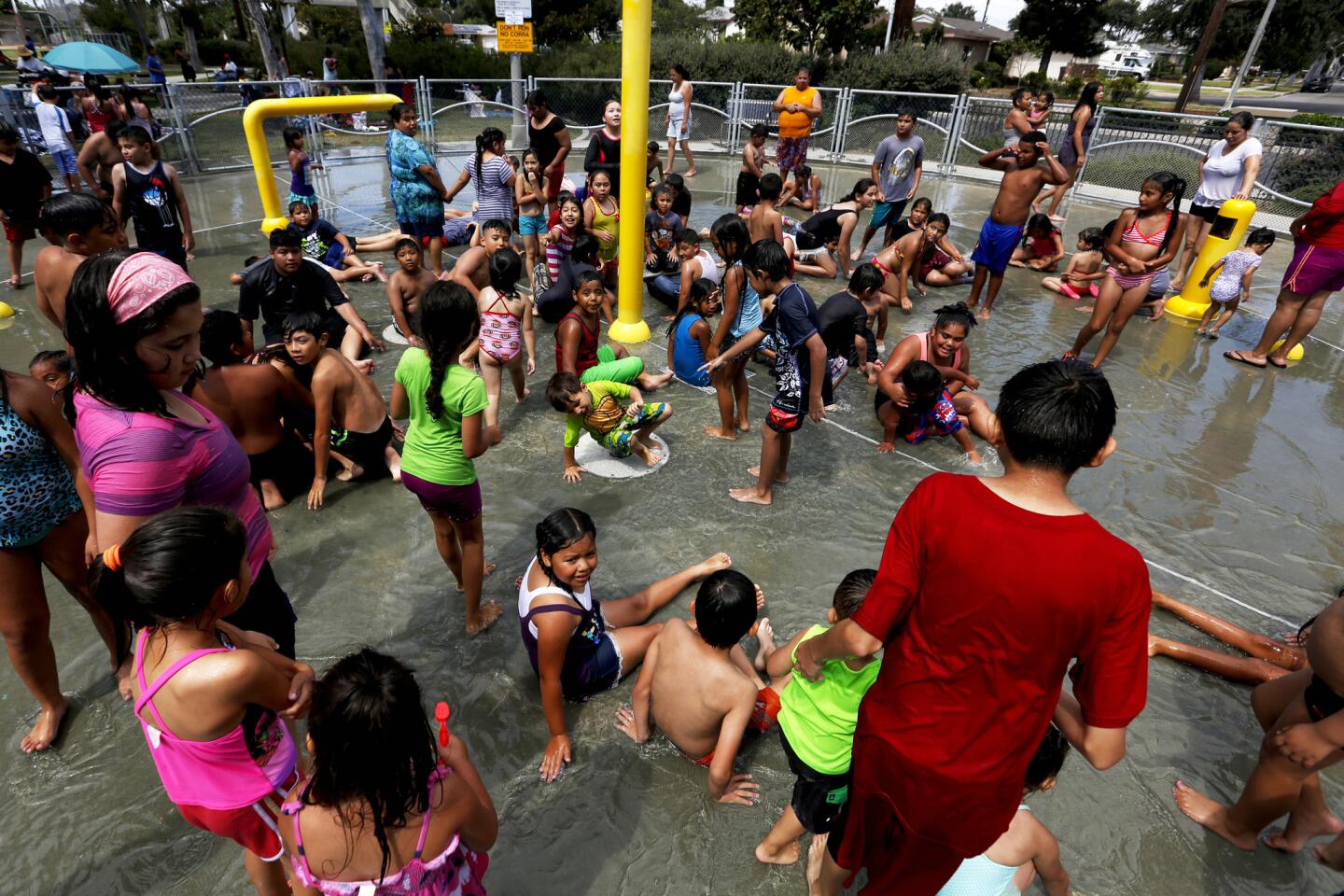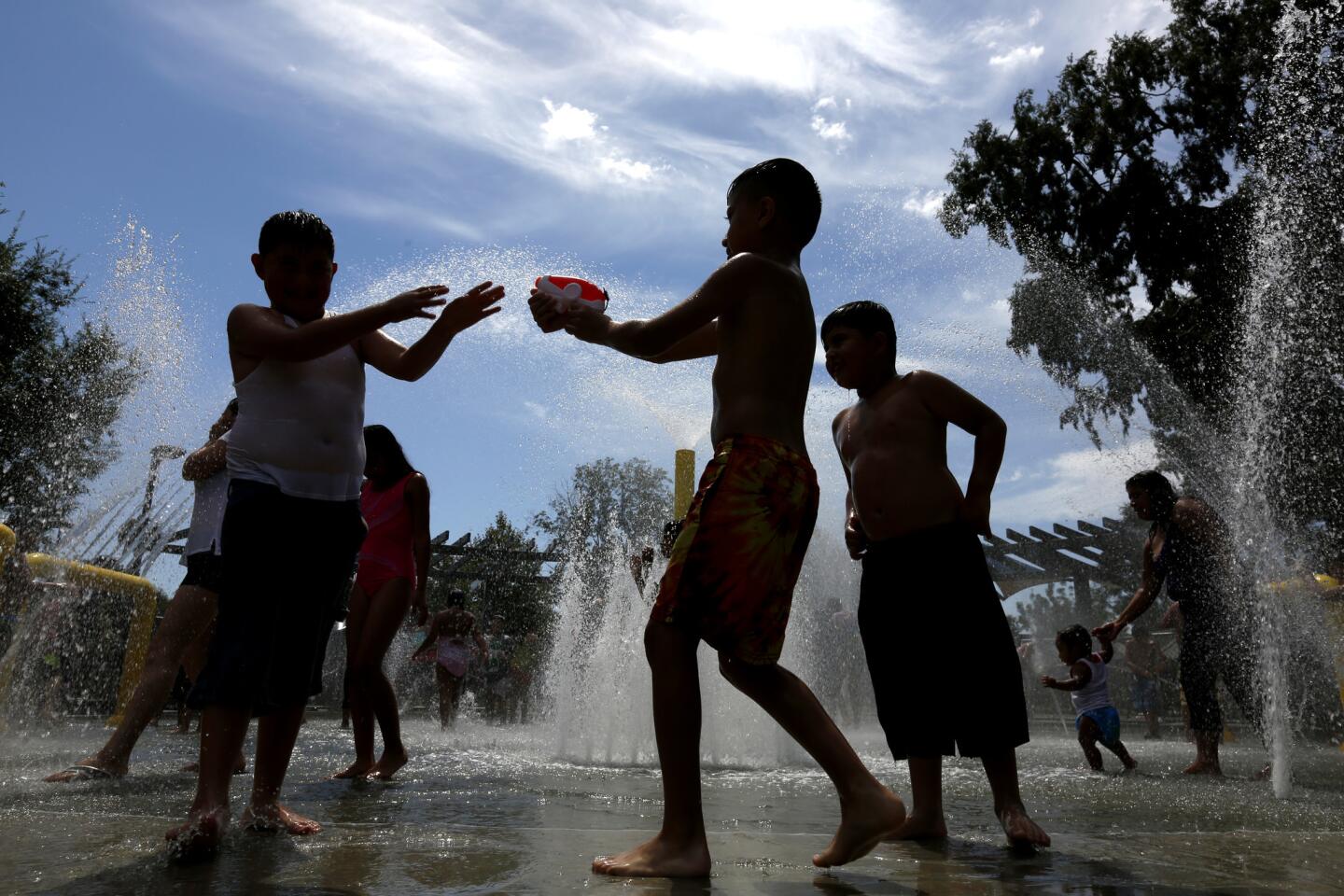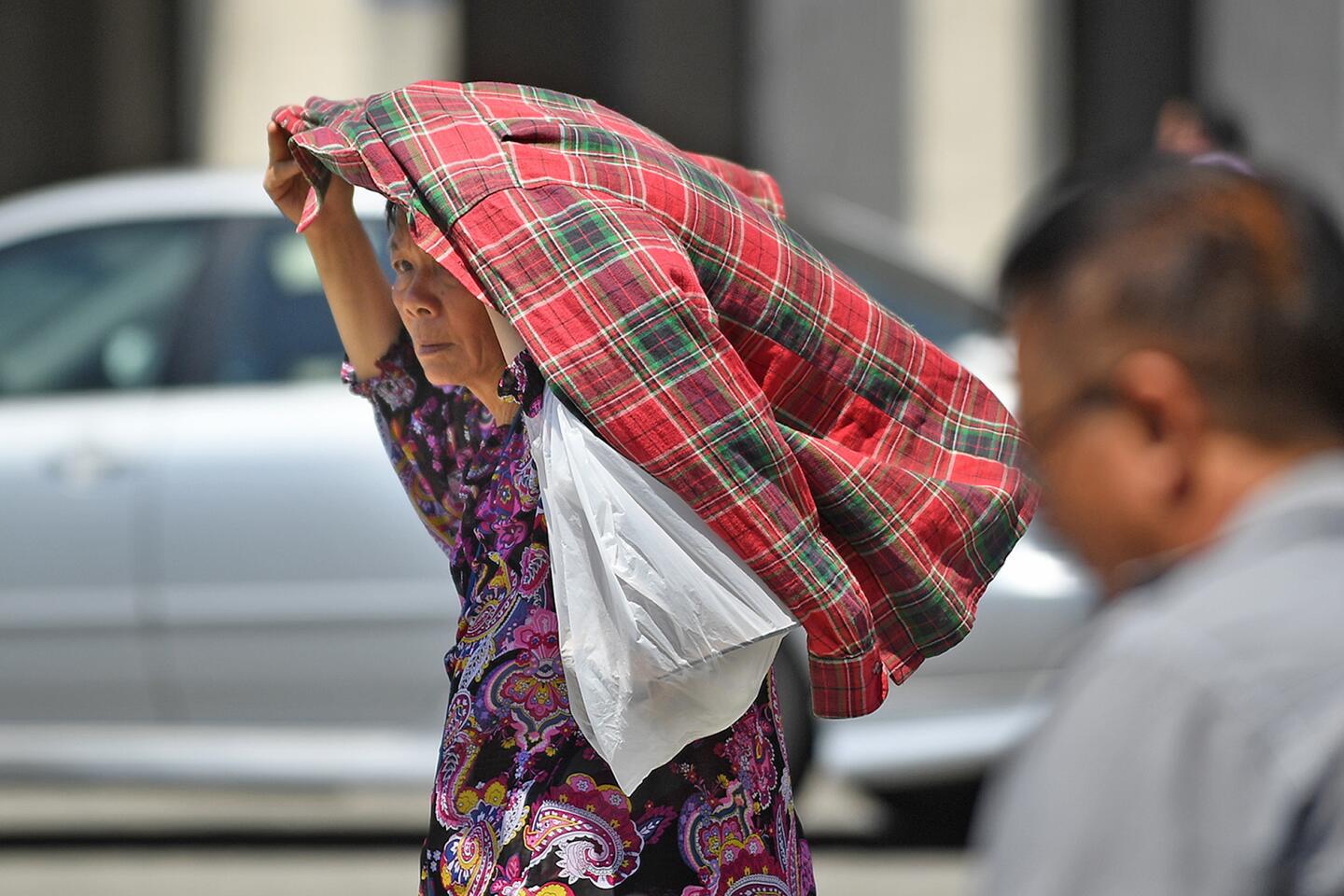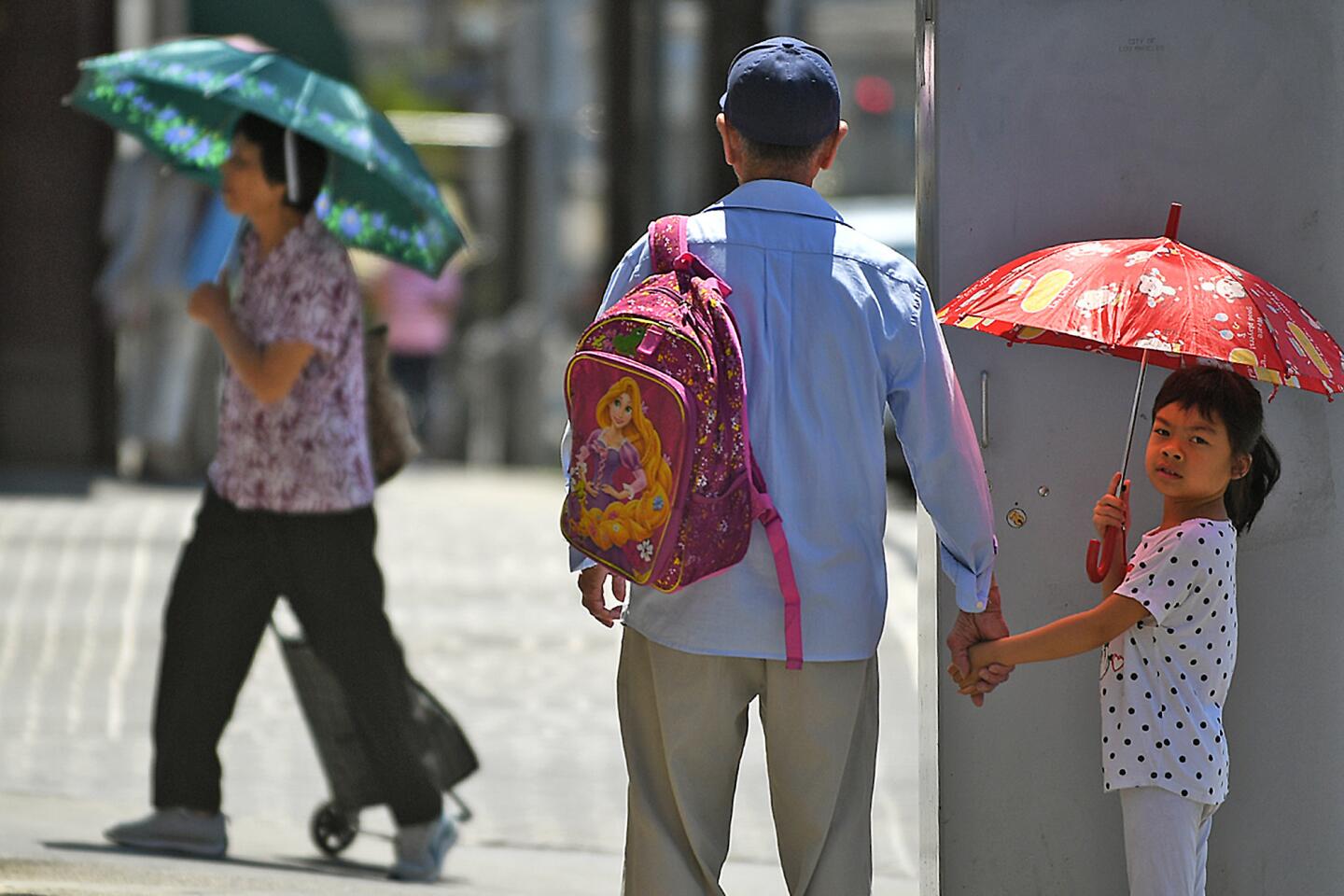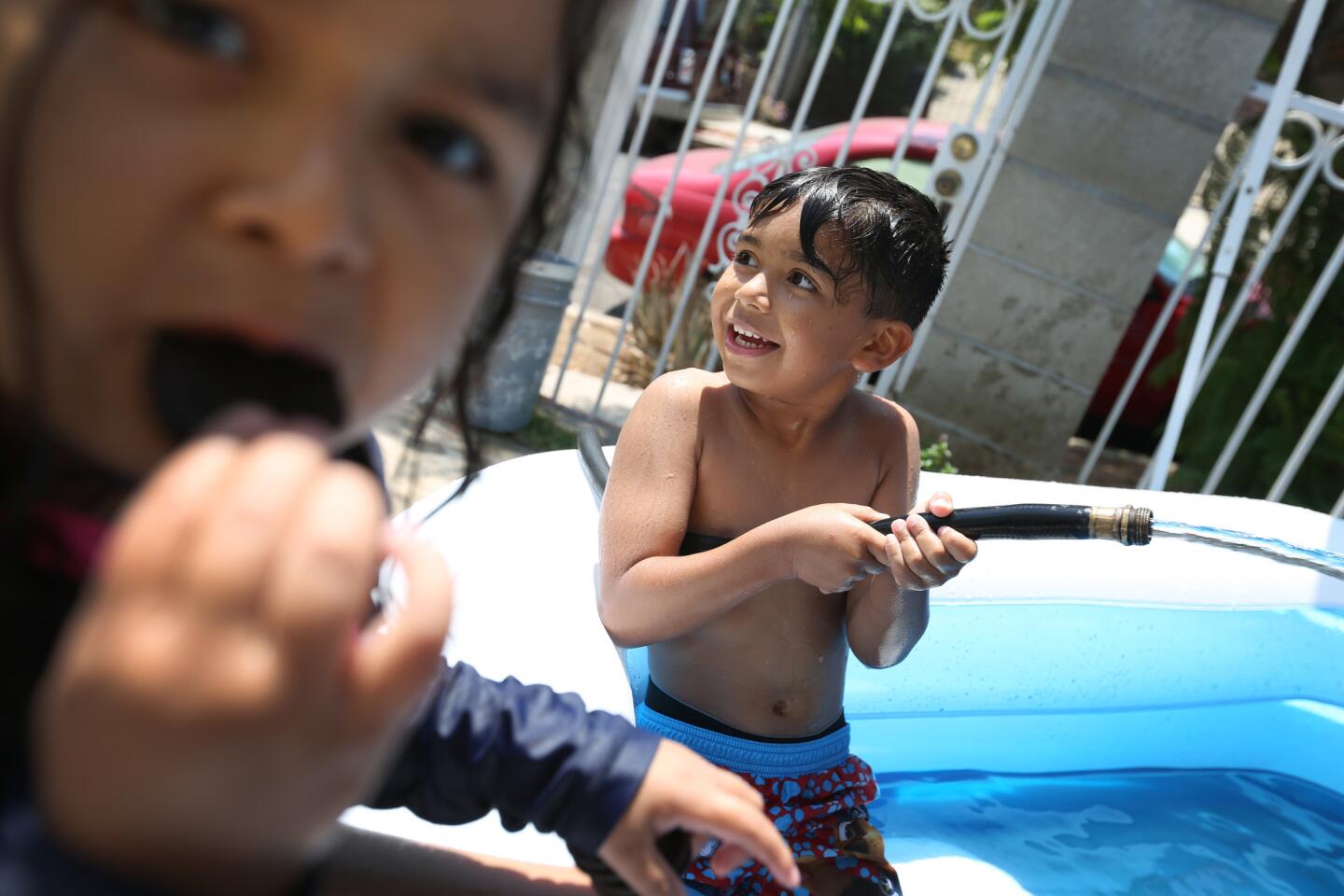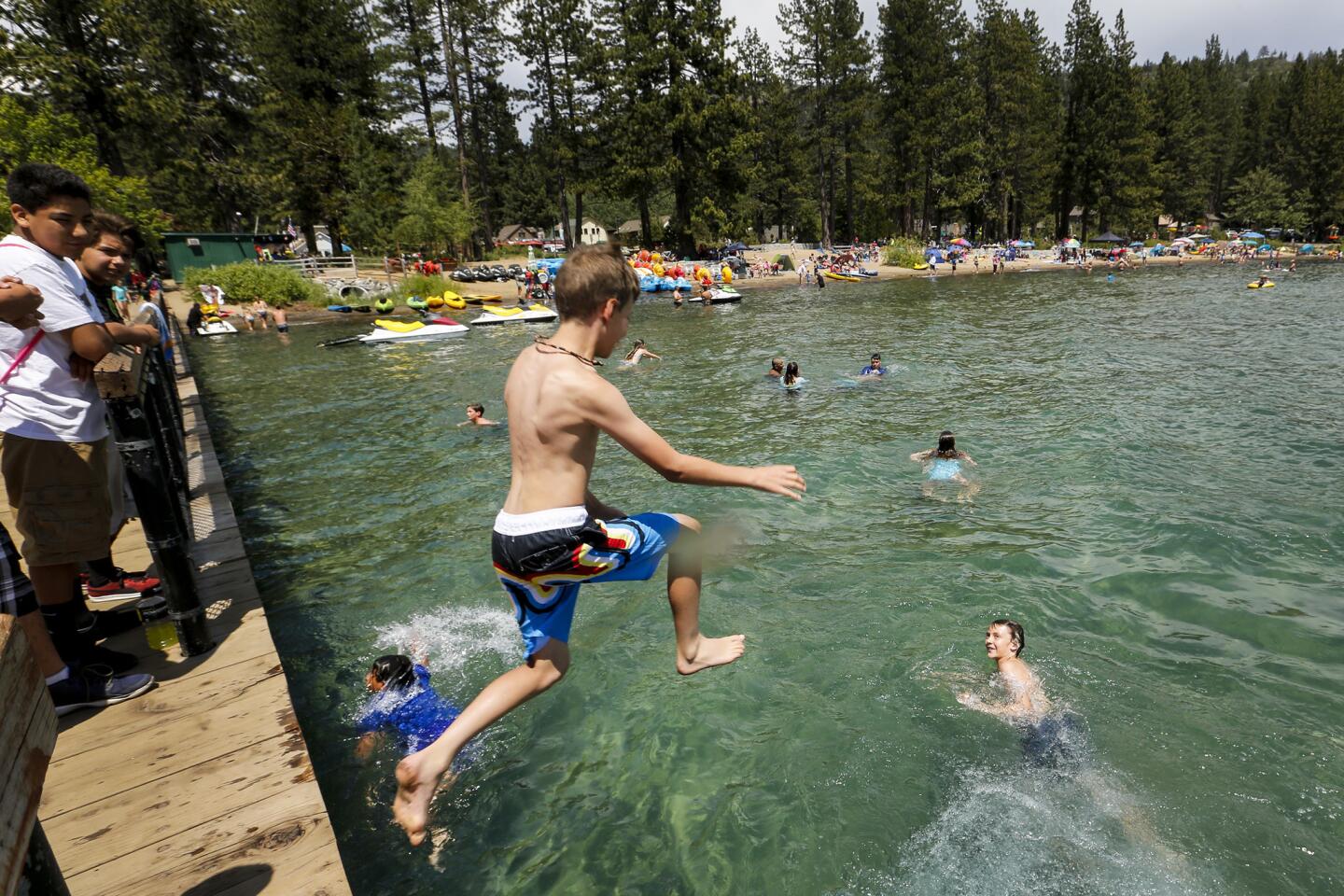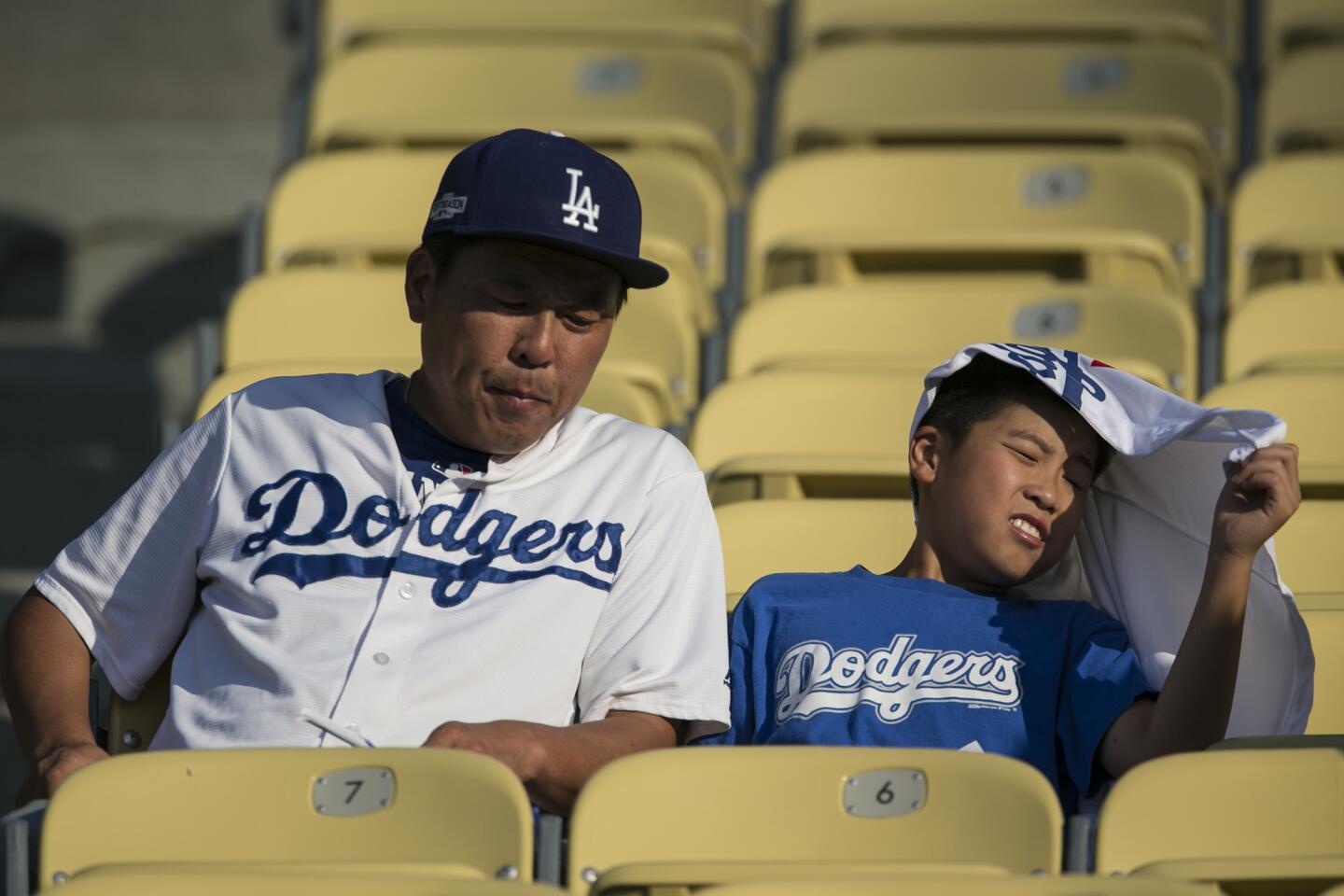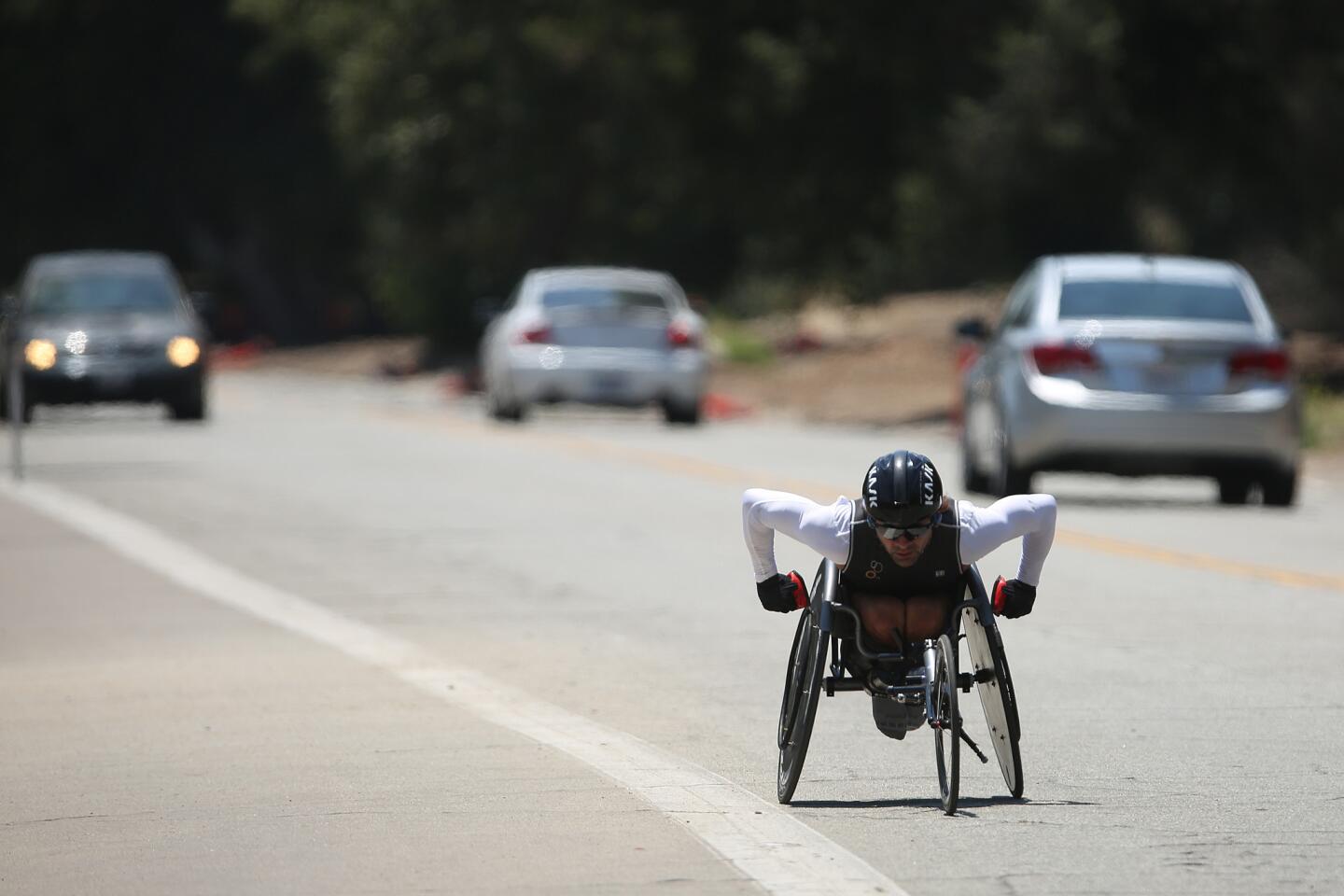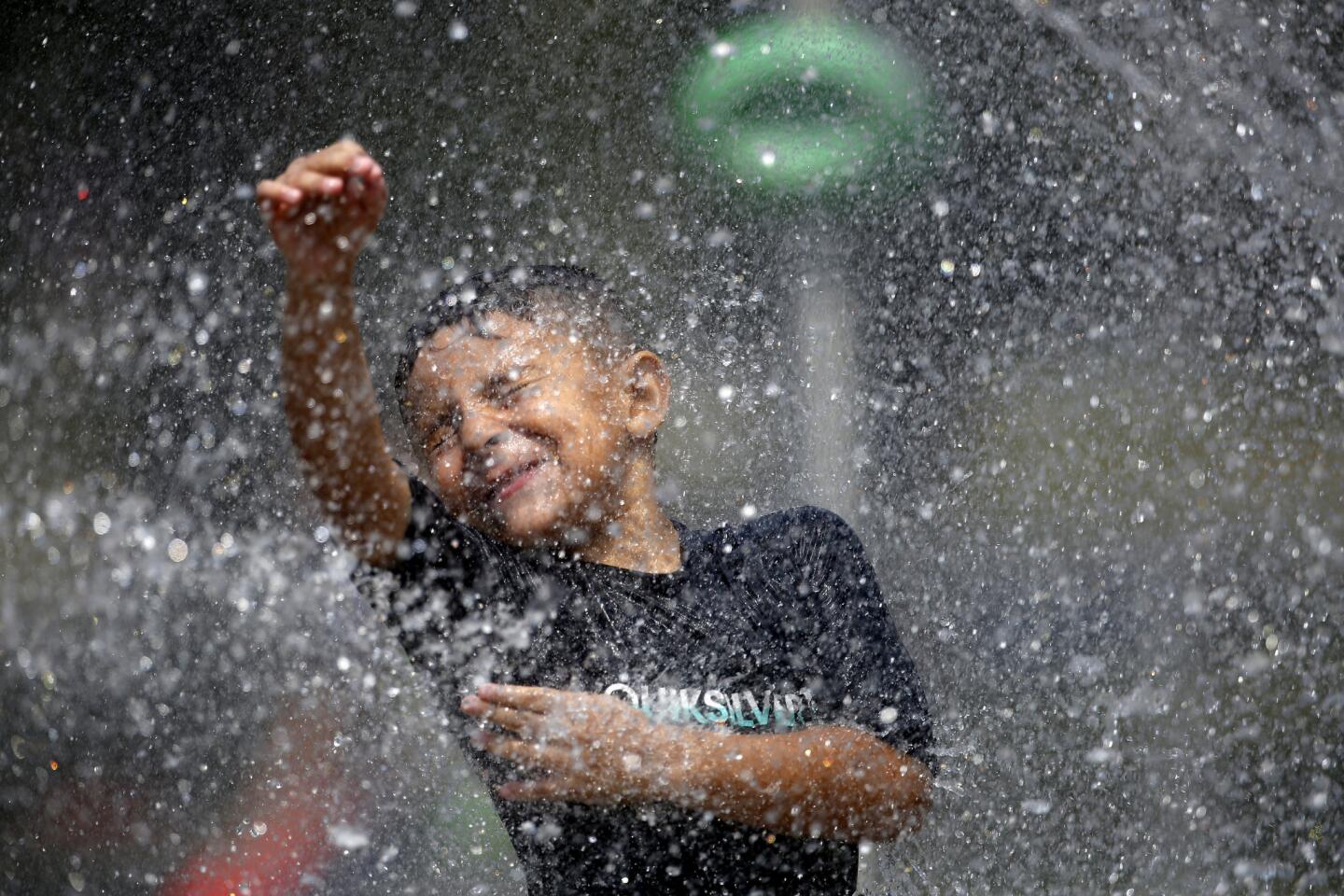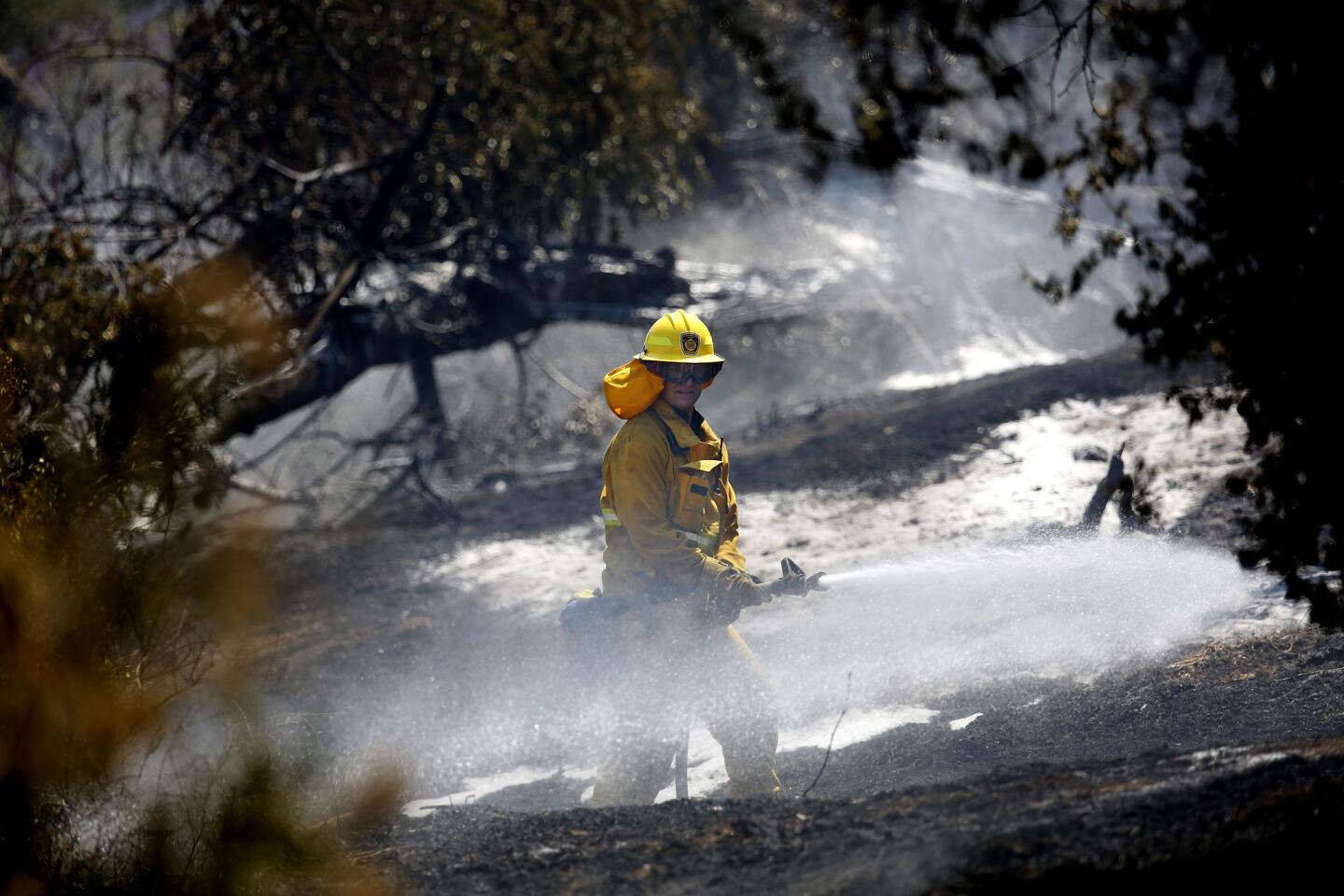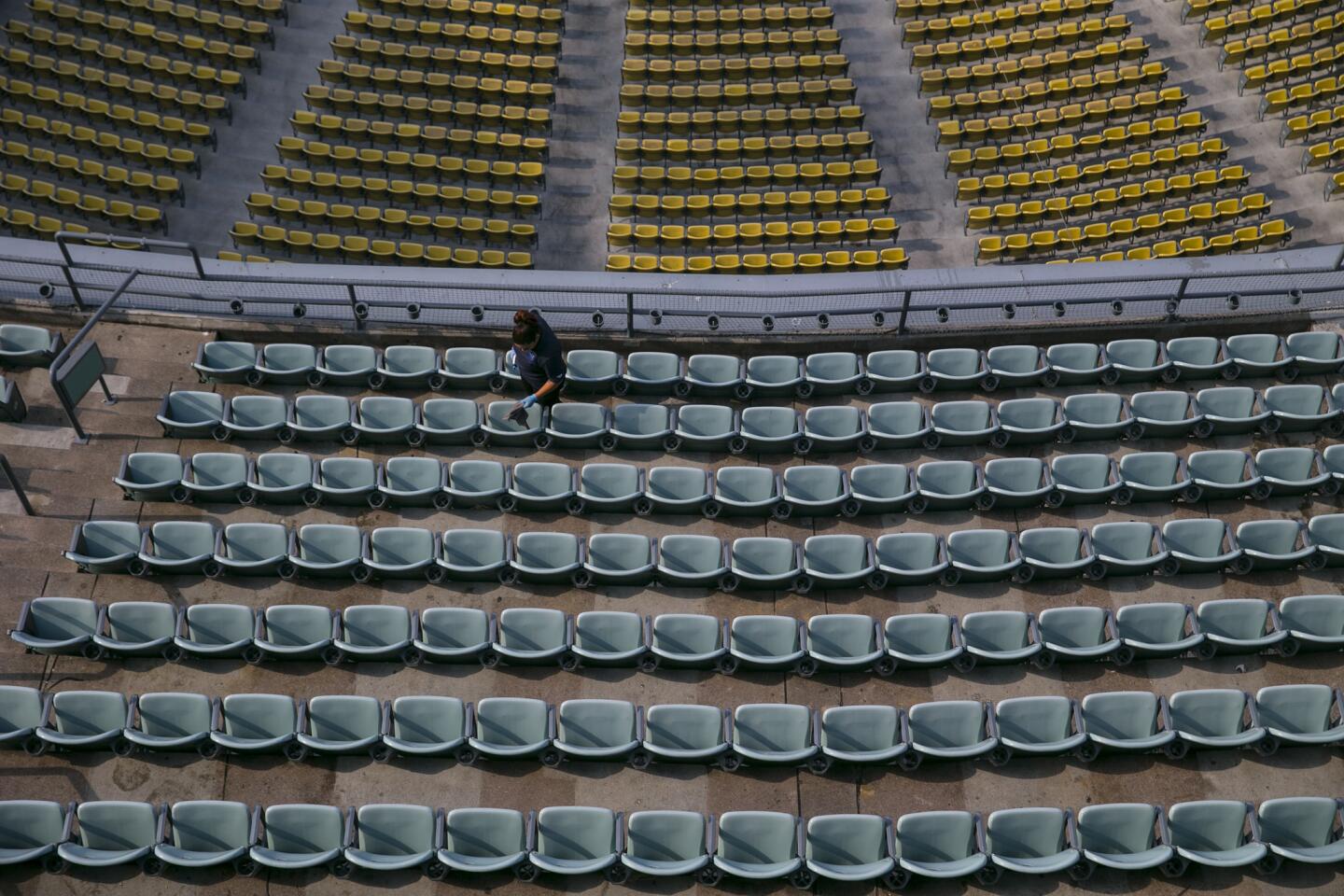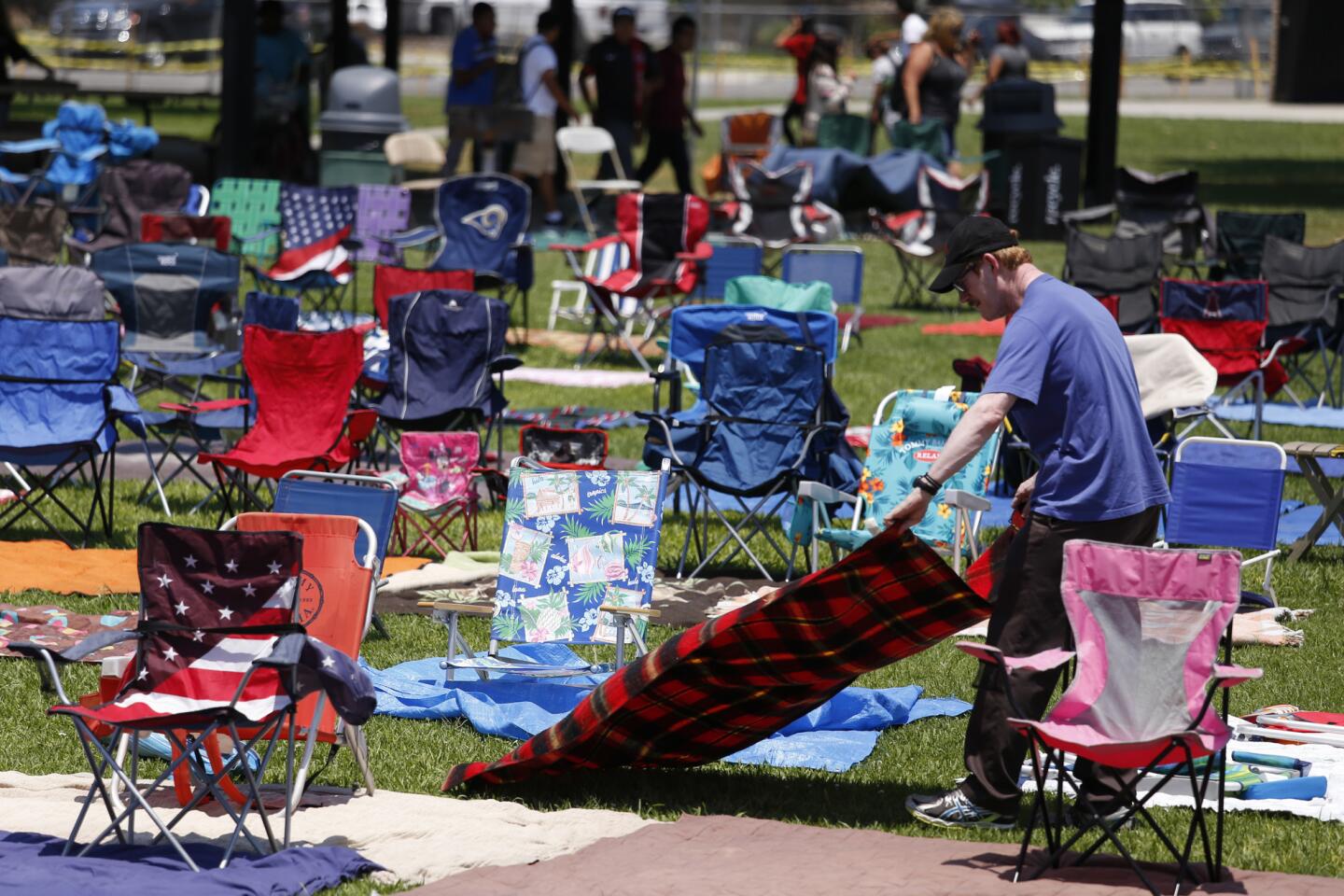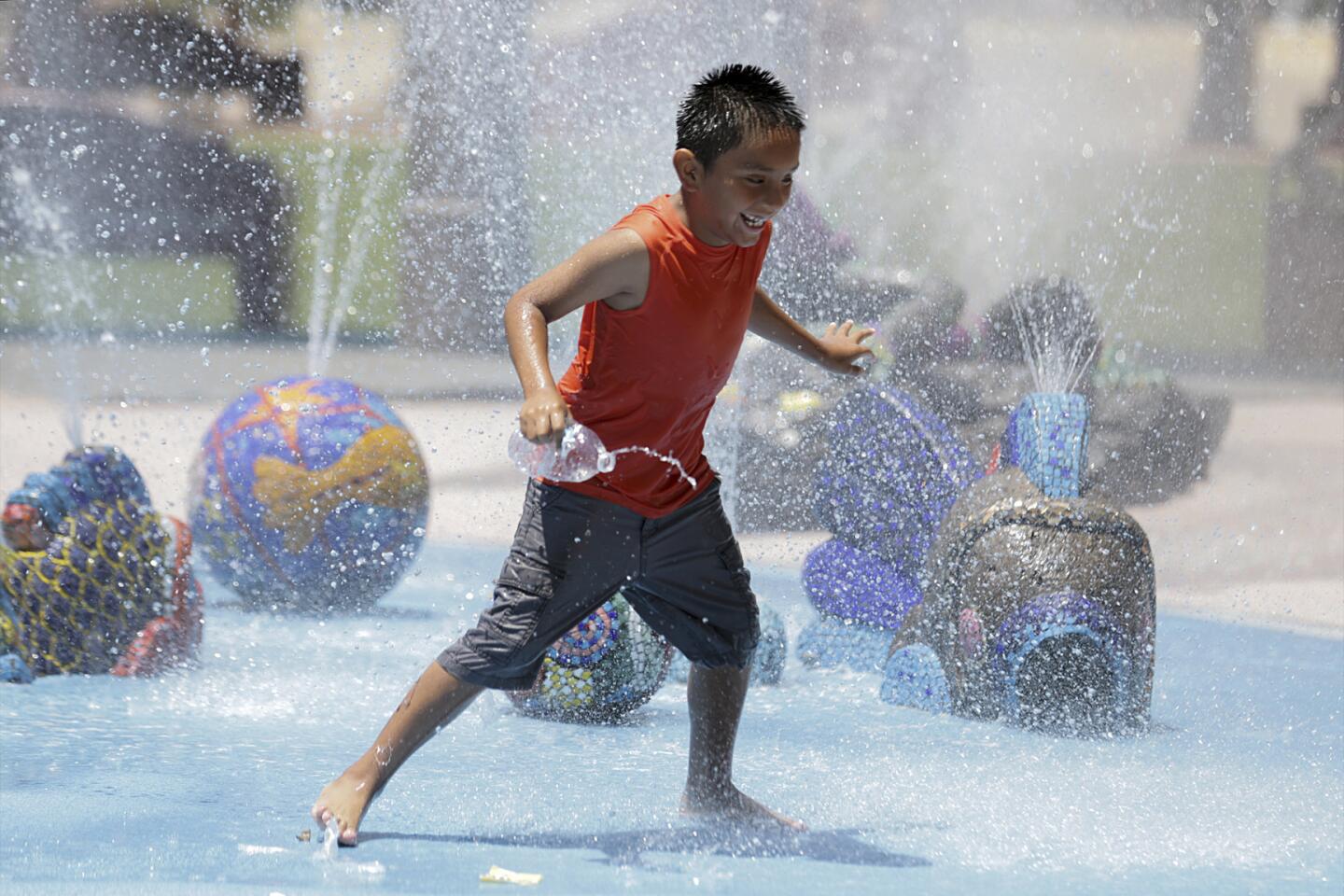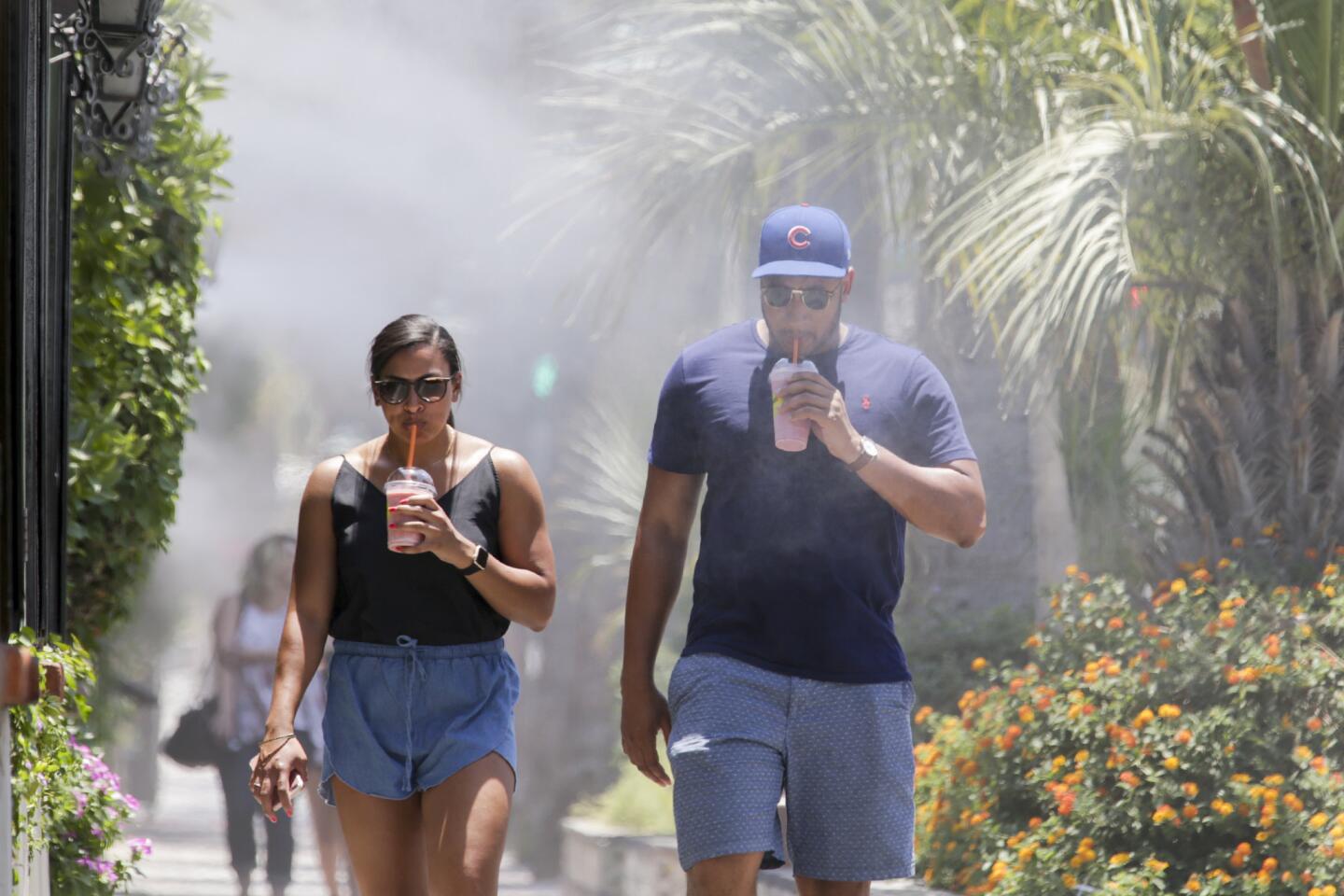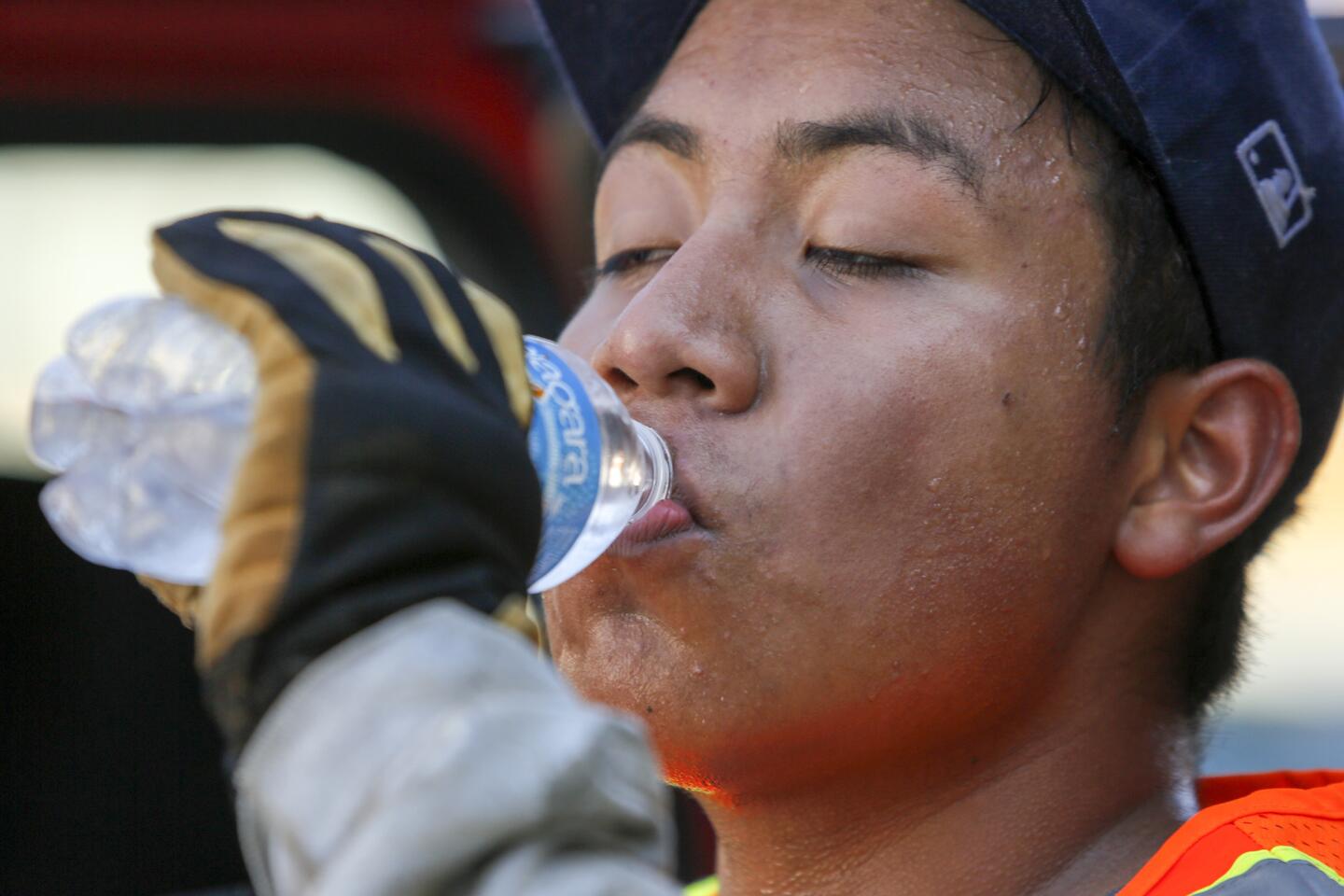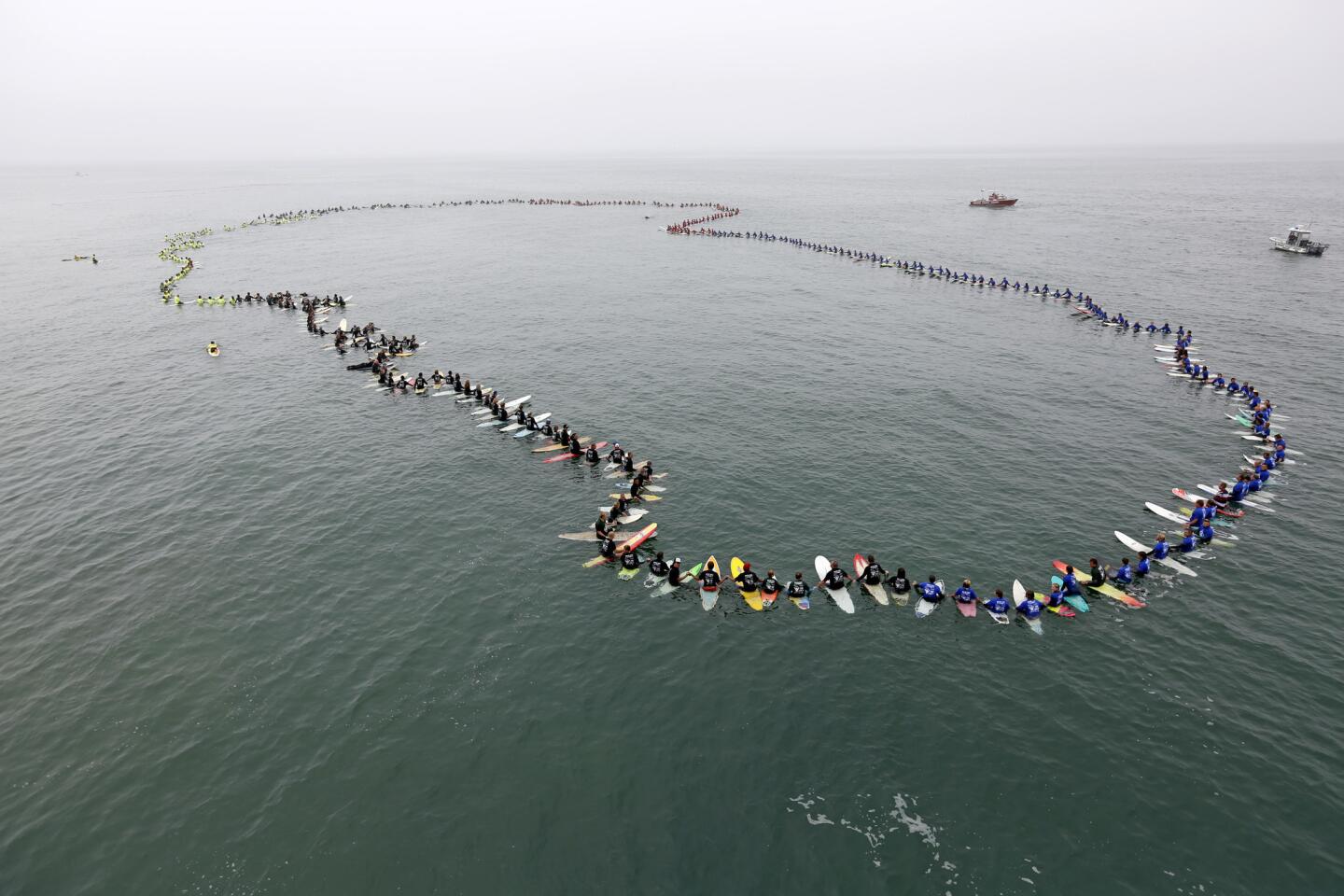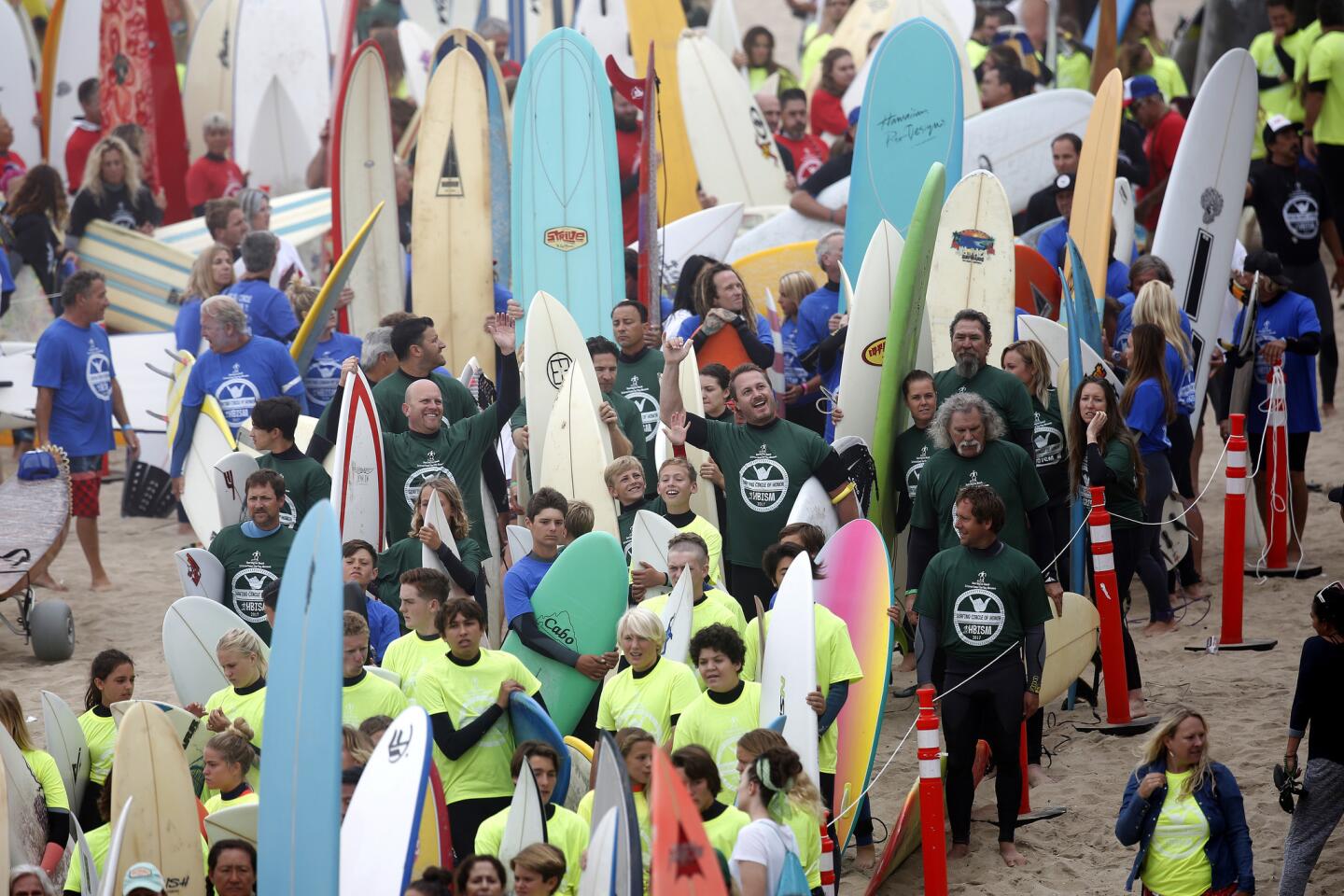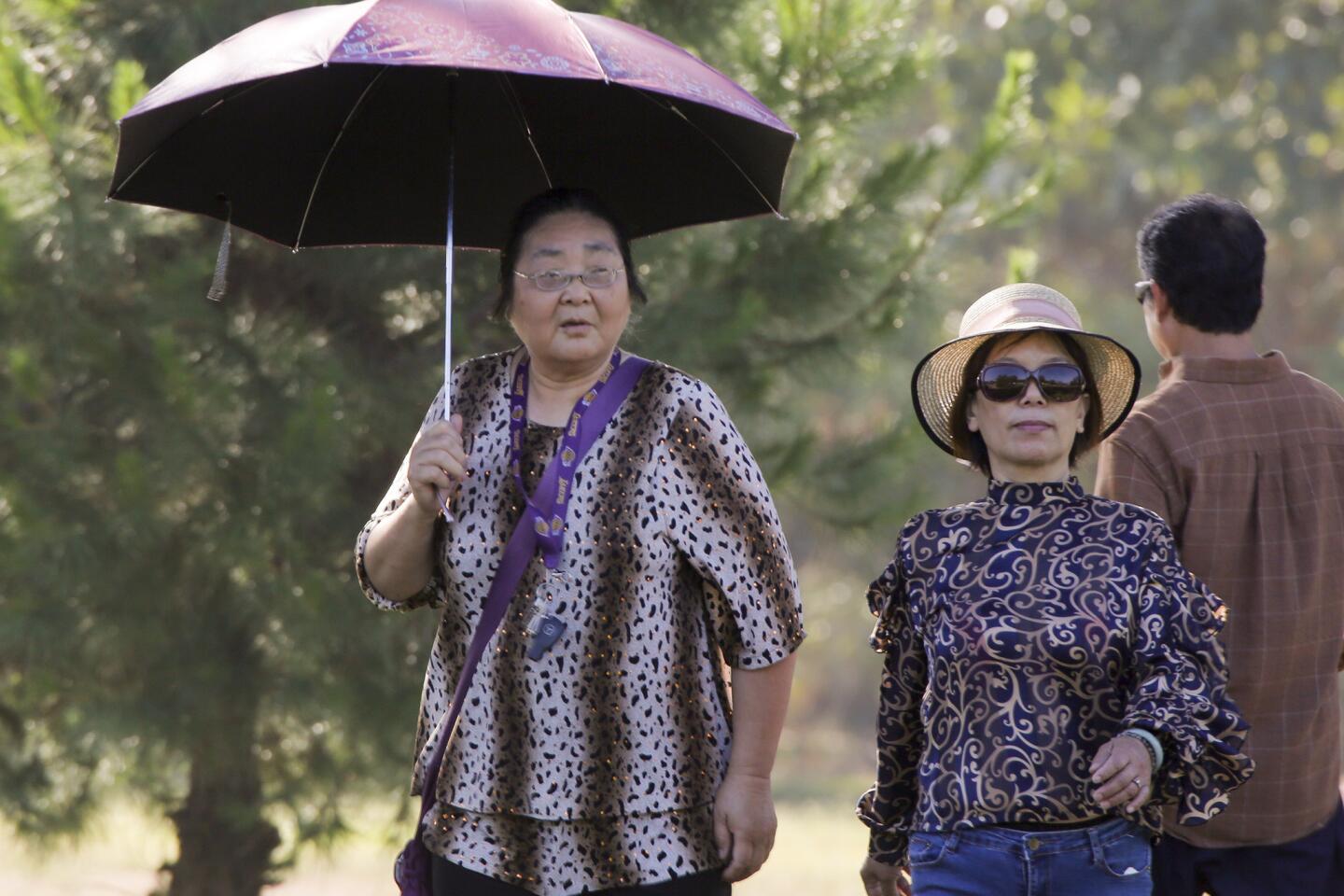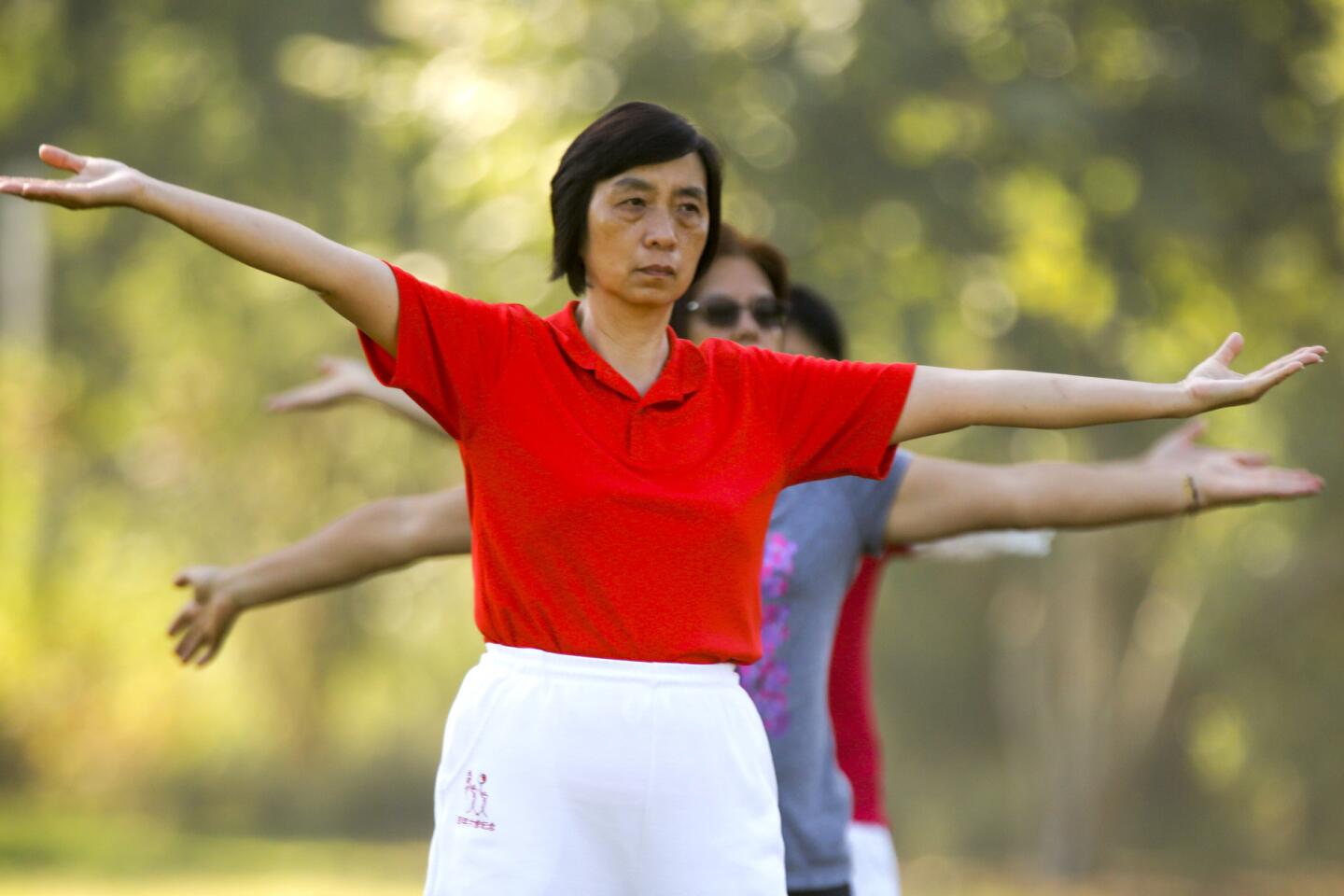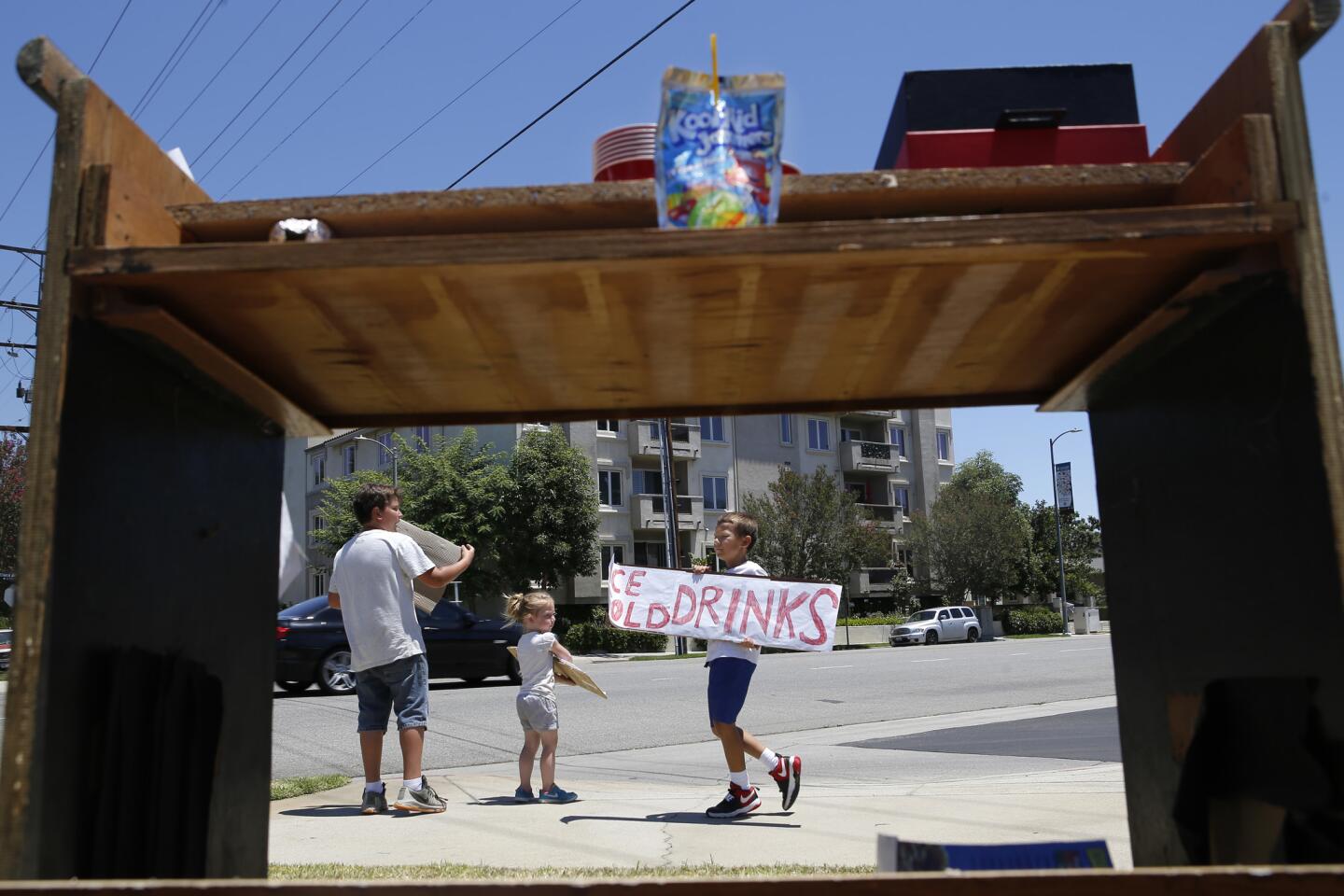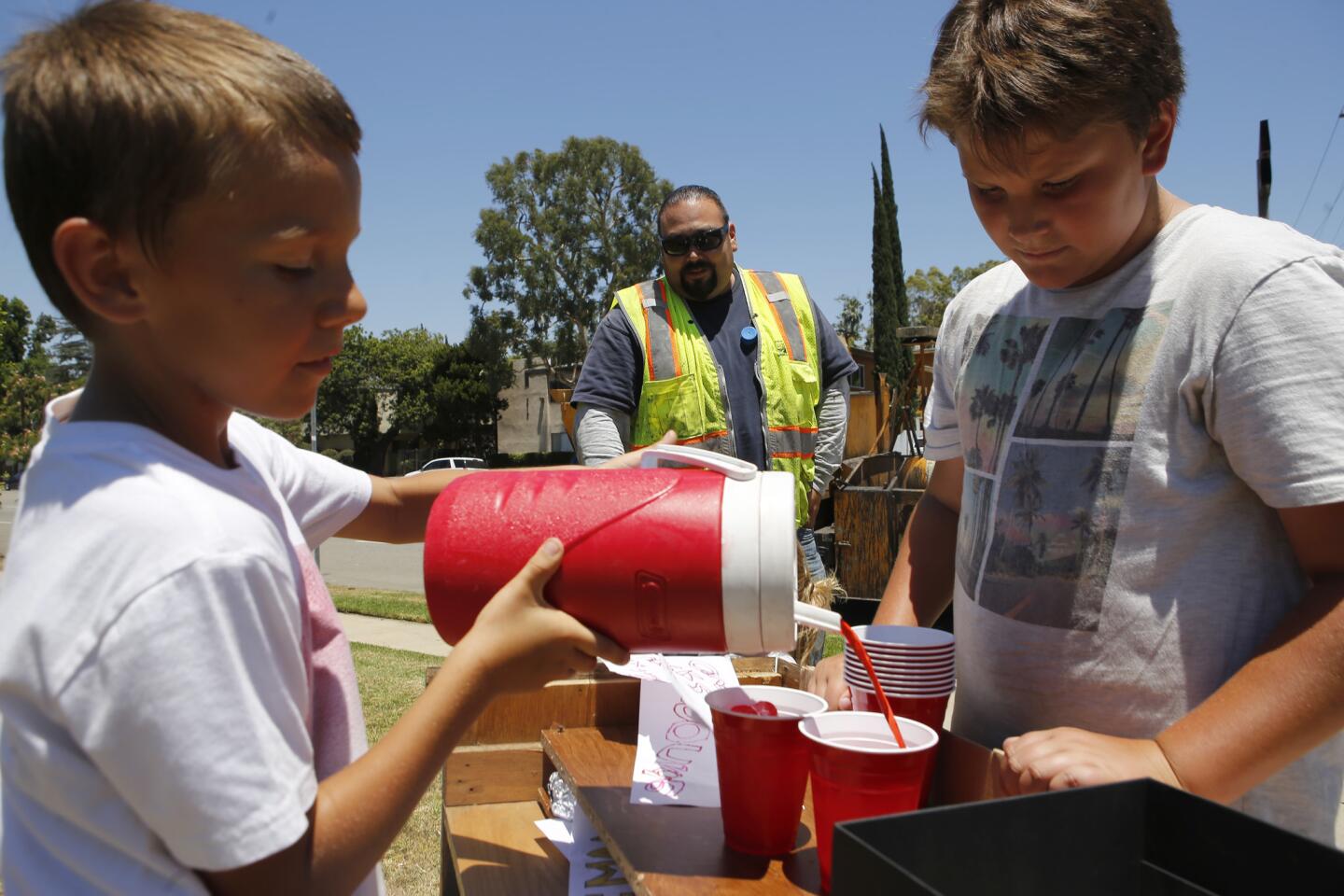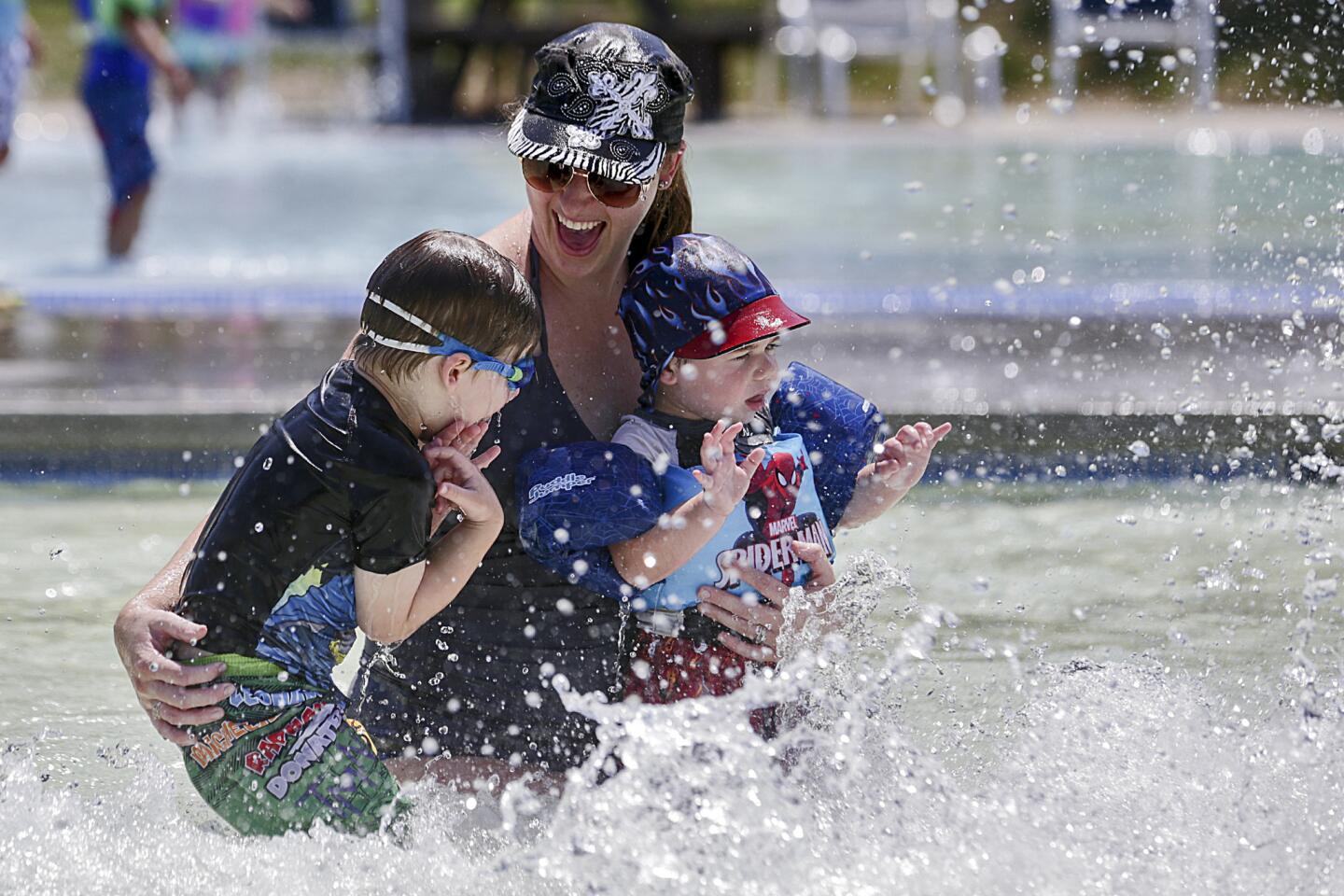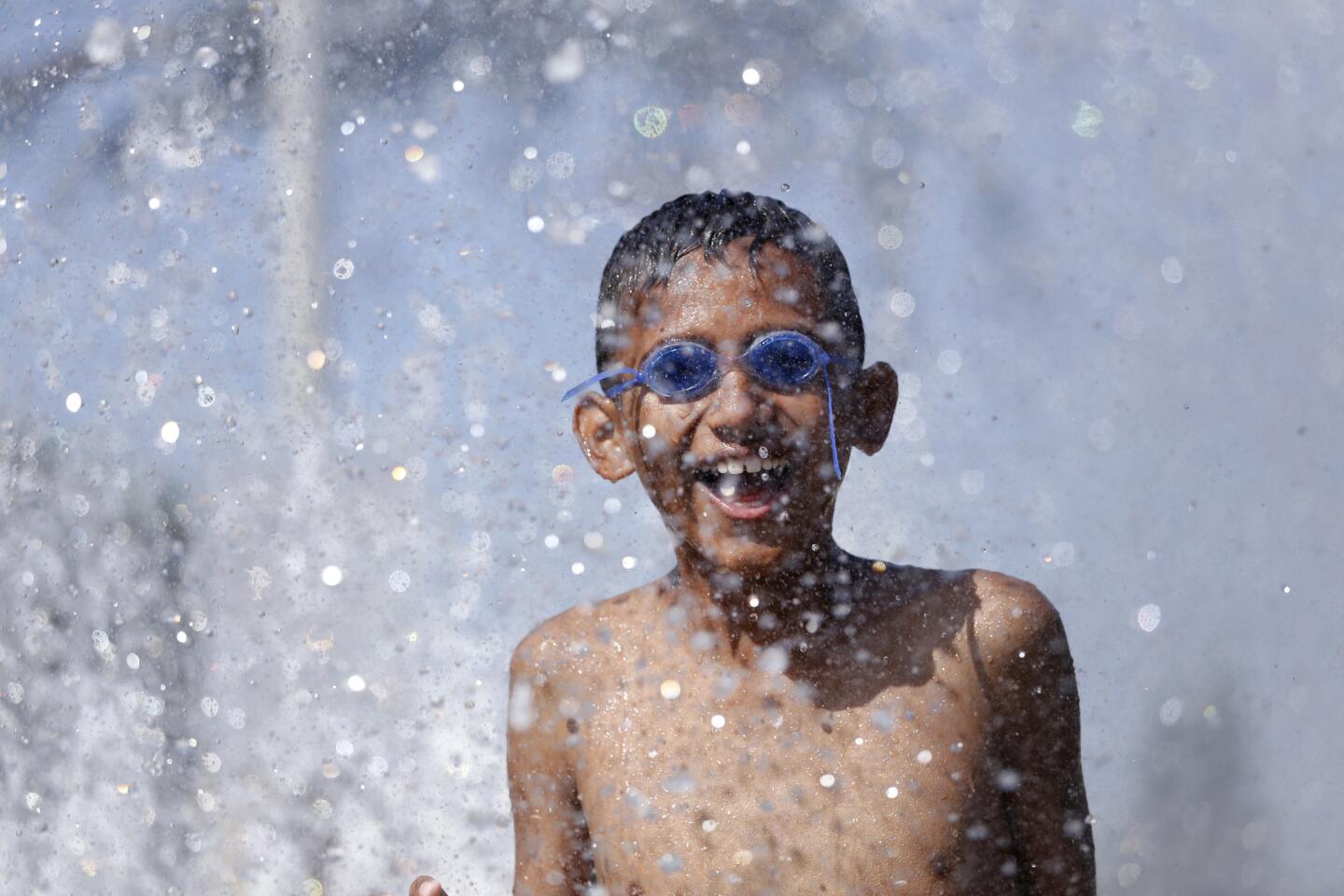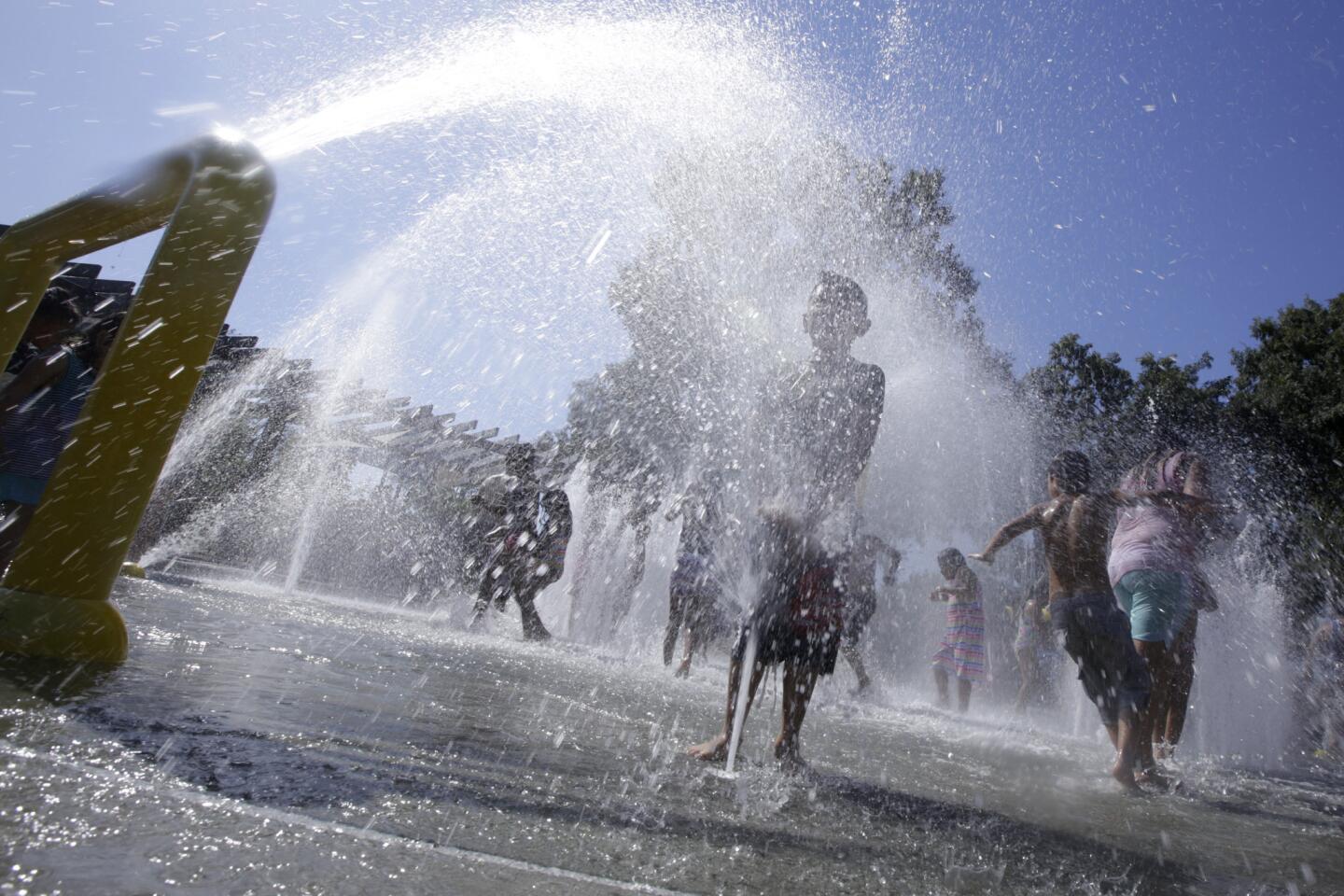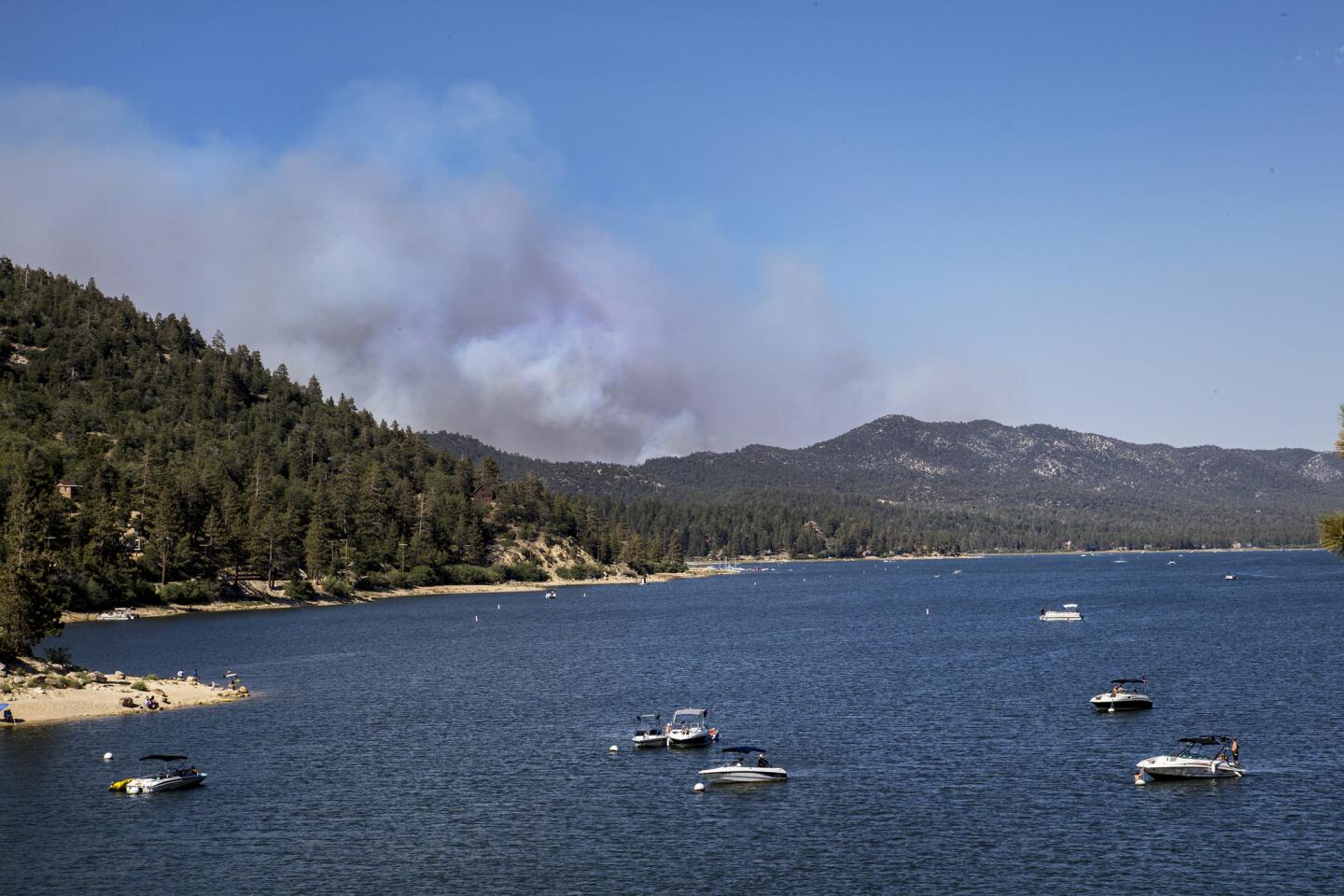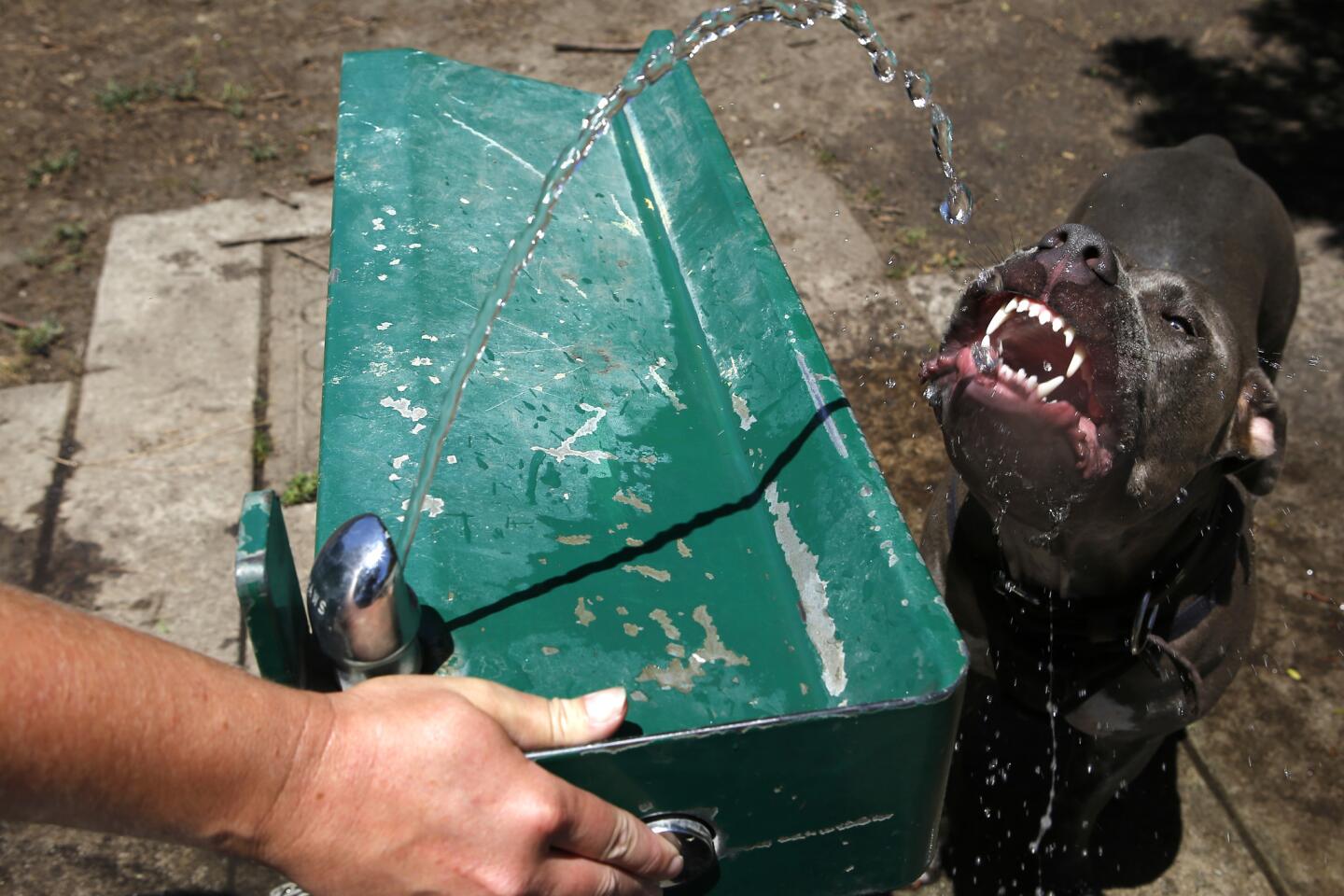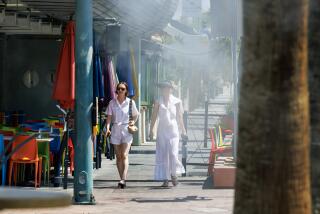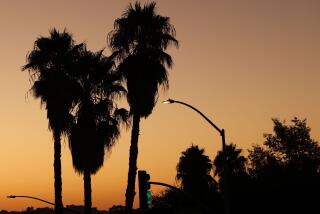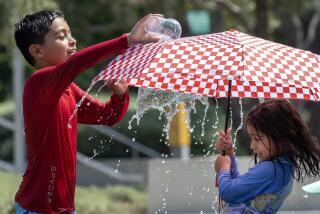It was 127 degrees in Death Valley, and miserable just about everywhere else. Here’s how we coped

First, ‘June Gloom.’ Now, Southern California is feeling the heat. (June 21, 2017) (Sign up for our free video newsletter here http://bit.ly/2n6VKPR)
In Death Valley, the heat brought even the roadrunners to a stop. They stood arched to the sky with their beaks wide open, as if in a stupor, or indignant at what the sun was up to.
The landscape blurred and undulated. People moved as if they were walking through glue. When a light breeze came in the afternoon, it stung their faces so badly they had to turn away from it. Water mains burst in the baking dirt, while the “cold” tap water came out of faucets the temperature of a Jacuzzi.
Across much of inland California on Tuesday, air-conditioned cars and buildings created sealed microclimates tolerable to humans, as a heat wave centered over the Southwest brought on summer with a vengeance.
Temperatures topped 100 in the valleys and 120 in the low desert. Death Valley hit 127 — seven degrees shy of the hottest day ever recorded on the planet.
Across the region, people found refuge in malls, movie theaters, libraries, cooling centers, pools, buses and the beach.
Others had no such leeway.
Grape pickers in the Coachella Valley started before dawn, but by 9 a.m. the temperature had topped 100 degrees.
Francis Resendiz, 36, wore a hat and handkerchiefs over her neck and face. She had a duffel bag of frozen electrolyte drinks that would melt throughout her shift.
“Tomen agua,” shouted a forewoman. Drink water.
Resendiz found some shade under the canopies of grape vines, but the leaves trapped humidity.
“It starts to feel like you’re suffocating,” she said.
In the Westside neighborhood of Beverlywood, David Johnson, a contractor for AT&T, geared up for a day of lifting equipment on power poles to replace fiber optic cables.
He took his water seriously.
“Hydration starts the day before,” he said.
California’s variegated topography broke the heat wave a little. The cool Pacific kept the coast mild. The Sierra Nevada still had enough snow that skiers were hitting slushy moguls in bathing suits.
In fact, so much snow still packed the Sierra that the dry heat filled streams and creeks with meltwater, forcing the U.S. Forest Service to close some campgrounds due to flooding.
“Here’s the remarkable scene unfolding along the eastern Sierra amid this heat wave,” said Deb Schweizer, a spokeswoman for the Inyo National Forest. “Snow is still heavy in higher elevations; there’s some flooding at mid-level elevations, and we’ve had a few brush fires down valley.”
On Santa Monica beach, the last wisps of “June Gloom” refused to succumb to the sun.
Some families were even disappointed with the cool weather. Stacey Sanchez, 25, sat on a beach chair next to her husband, not at all impressed by the gray scene, as their 3-year-old daughter played in the sand. They had the day off work and had driven from their home in Montebello for this grunge.
“We were expecting to have the whole afternoon, but since it’s a little cold, only an hour or two,” Stacey said. “We’ll go home, take a shower, and then back to the air conditioner.”
Straight over the Sepulveda Pass, the temperature was 30 degrees warmer, so much so that patrons at the Woodland Hills Branch Library stayed for hours to escape the heat.
Eric Verna, 44, hasn’t had a place to live in a few weeks. He had been driving his car, wandering around any building with air conditioning, he said. On Tuesday he received a library card and settled in with a few books, hoping to hear about an available room somewhere.
“I got tired of walking in malls,” Verna said.
Cynthia Galvan, 30, of Palm Springs wanted to hole up inside all day. But it was her 6-year-old daughter’s birthday.
So she packed fruit, sandwiches and Gatorade, and took her family to the Fountain of Life, an elaborate splash pad of tall stone columns adorned with mosaic tiles and glass in Cathedral City. Just after 1 p.m., as the temperature pushed 120 degrees, her kids shouted and splashed in the streams of water, oblivious to the heat.
But she didn’t plan on staying too long — maybe just half an hour.
“We’re going to go home, rest, let them nap and then probably do the movies later tonight,” Galvan said. “It’s too much heat. I don’t want them to get sick.”
The intense heat is part of a system commonly referred to as the “Four Corners High,” a high-pressure system that settles over the desert Southwest near the Four Corners area, where Arizona, Utah, New Mexico and Colorado meet.
In anticipation of the heat, Los Angeles County posted a list of cooling centers online, while operators of California’s electrical grid issued their first flex alert of the year on Tuesday.
The California Independent System Operator urged energy consumers to scale back power consumption over the next two days or risk outages.
The heat wave was expected to peak Tuesday, National Weather Service meteorologist Curt Kaplan said.
At 7 a.m. in Death Valley, customers, short-order cooks and waitresses were already sweating inside the Wrangler Restaurant in Furnace Creek, where the air-conditioning system had broken down. With the heat from the ovens adding to the misery, they tried to cool down by wrapping wet towels around their necks and guzzling ice water. But a manager had to pull the plug on this mess and close.
“We can’t put customers through this — it’s just too hot,” John Kukreja said.
Facing a full week of temperatures above 120 degrees, officials at the national park’s headquarters — 190 feet below sea level — are bracing for heat-related illness and injuries.
Earlier this month, a woman was transported to the hospital with third-degree burns on her feet.
“She’d lost her sandals in Mesquite Flat Sand Dunes and walked about a half-mile on the hot sand,” Abby Wines, a spokeswoman for the park, said in a statement.
Ground temperatures exceeding 200 degrees have been measured in Death Valley. “To put that in perspective,” Wines said, “160 degrees is sufficient to cook meat.”
Park rangers warned visitors to avoid straying from their air-conditioned vehicles for longer than 15 minutes, and to carry plenty of water and wear a hat and sunscreen.
The highest air temperature ever recorded on Earth was in Death Valley on July 10, 1913 — 134 degrees.
National Park Service maintenance crew members had to follow strict safety protocols that include working for 10 minutes, then resting and hydrating for 20 minutes, before resuming the labor. All work had to cease when the temperature exceeded 119.
That posed a dilemma for workers trying to repair a broken water main at an RV campground at the Stovepipe Wells resort. Their digital thermometers kept flashing back and forth between 118 and 119.
They decided to finish the job.
“When it gets this hot, a lot of these pipes start busting open like 60-year-old clogged arteries,” said Andrew Becraft, 33, the park’s acting supervisor over roads and mechanics. “We’ll be repairing broken mains all over this park for the next three months — it’s the nature of the beast in Death Valley.”
Down the road, Mike Darby went about his job, wondering what all the fuss was about. He pumped the sludge out of a gas station’s septic tanks and packed up his hoses and valve connectors to hit the next spot.
“Two more stops and I’ll have a full load of 4,000 gallons,” said Darby, 57, his beard glistening with sweat.
“You have to be cut from a certain kind of cloth to do this work,” he said. “It’s got to be done, and I was made to do it.”
Sahagun reported from Death Valley, Esquivel from Cathedral City and Bernhard from Los Angeles. Times staff writer Joe Mozingo contributed to this report.
[email protected] | Twitter: @louissahagun
[email protected] | Twitter: @palomaesquivel
[email protected] | Twitter: @meg_bernhard
[email protected] | Twitter: @leilamillersays
ALSO
It’s swimsuit weather on California’s ski slopes
Firefighters battle 850-acre wildfire near Big Bear
More to Read
Sign up for Essential California
The most important California stories and recommendations in your inbox every morning.
You may occasionally receive promotional content from the Los Angeles Times.
